The Dictionary of Classical Hebrew, Volume VI Samekh–Pe
Published: Nov 2007
£150.00
The Dictionary of Classical Hebrew is a completely new and innovative dictionary.
Unlike previous dictionaries, which have been dictionaries of biblical Hebrew, this is the first dictionary of the classical Hebrew language to include the Bible, Dead Sea Scrolls, and all the other known Hebrew inscriptions and manuscripts.
This Dictionary covers the period from the earliest times to 200 CE. It lists and analyses every occurrences of each Hebrew word that occurs in texts of that period, with an English translation of every Hebrew word and phrase cited.
Among its special features are: a list of the non-biblical texts cited (especially the Dead Sea Scrolls), a word frequency index for each letter of the alphabet, a substantial bibliography (from Volume 2 onward) and an English–Hebrew index in each volume.
The Dictionary of Classical Hebrew, Volume VI Samekh–Pe
£150.00
The Dictionary of Classical Hebrew is a completely new and innovative dictionary.
Unlike previous dictionaries, which have been dictionaries of biblical Hebrew, this is the first dictionary of the classical Hebrew language to include the Bible, Dead Sea Scrolls, and all the other known Hebrew inscriptions and manuscripts.
This Dictionary covers the period from the earliest times to 200 CE. It lists and analyses every occurrences of each Hebrew word that occurs in texts of that period, with an English translation of every Hebrew word and phrase cited.
Among its special features are: a list of the non-biblical texts cited (especially the Dead Sea Scrolls), a word frequency index for each letter of the alphabet, a substantial bibliography (from Volume 2 onward) and an English–Hebrew index in each volume.
Identity and Interaction in the Ancient Mediterranean: Jews, Christians and Others. Essays in Honour of Stephen G. Wilson
Published: Oct 2007
£50.00
Stephen G. Wilson was Professor of Religion at Carleton University, Ottawa, and Director of the College of Humanities until his retirement in 2007. His contributions to the study of the religious identities of Jews, Christians, and Gentiles in the first three centuries of the Common Era are widely acknowledged; his interests have been no less in the contrasting and sometimes conflicting religious identities within each of these three groups.
Among his best-known publications are The Gentiles and the Gentile Mission in Luke —Acts (1973), Luke and the Law (1983), Related Strangers: Jews and Christians 70 —170 CE (1995), and Leaving the Fold: Defectors and Apostates in Antiquity (2004). The present collection of essays develops further Wilson's researches on the general theme of identity and interaction.
The sixteen contributors to this Festschrift include Kim Stratton on curse rhetoric, Adele Reinhartz on Caiaphas, Willi Braun on meals and social formation, Philip Harland on meals and social labelling, Richard Ascough on missionizing associations, John Barclay on Judaean identity in Josephus, John Kloppenborg on the recipients of the Letter of James, Laurence Broadhurst on ancient music, Larry Hurtado on manuscripts and identity, Edith Humphey on naming in the Apocalypse, Michele Murray on the Apostolic Constitutions, Roger Beck on the Late Antique 'Horoscope of Islam', Graydon Snyder on the Ethiopian Jews, Alan Segal on Daniel Boyarin, Robert Morgan on theology vs religious studies, and William Arnal on scholarly identities in the study of Christian Origins.
Identity and Interaction in the Ancient Mediterranean: Jews, Christians and Others. Essays in Honour of Stephen G. Wilson
£50.00
Stephen G. Wilson was Professor of Religion at Carleton University, Ottawa, and Director of the College of Humanities until his retirement in 2007. His contributions to the study of the religious identities of Jews, Christians, and Gentiles in the first three centuries of the Common Era are widely acknowledged; his interests have been no less in the contrasting and sometimes conflicting religious identities within each of these three groups.
Among his best-known publications are The Gentiles and the Gentile Mission in Luke —Acts (1973), Luke and the Law (1983), Related Strangers: Jews and Christians 70 —170 CE (1995), and Leaving the Fold: Defectors and Apostates in Antiquity (2004). The present collection of essays develops further Wilson's researches on the general theme of identity and interaction.
The sixteen contributors to this Festschrift include Kim Stratton on curse rhetoric, Adele Reinhartz on Caiaphas, Willi Braun on meals and social formation, Philip Harland on meals and social labelling, Richard Ascough on missionizing associations, John Barclay on Judaean identity in Josephus, John Kloppenborg on the recipients of the Letter of James, Laurence Broadhurst on ancient music, Larry Hurtado on manuscripts and identity, Edith Humphey on naming in the Apocalypse, Michele Murray on the Apostolic Constitutions, Roger Beck on the Late Antique 'Horoscope of Islam', Graydon Snyder on the Ethiopian Jews, Alan Segal on Daniel Boyarin, Robert Morgan on theology vs religious studies, and William Arnal on scholarly identities in the study of Christian Origins.
The Impartial God: Essays in Biblical Studies in Honor of Jouette M. Bassler
Published: Oct 2007
£55.00
Jouette M. Bassler, Professor of New Testament at Perkins School of Theology at Southern Methodist University since 1986, is widely recognized for contributions to Pauline studies, the Pastoral Epistles, women in the New Testament, and for her work as editor of the Journal of Biblical Literature from 1995 to 1999.
The nineteen contributions to this Festschrift include: Charles Cousar on the Christ-hymn in Philippians, Gordon Fee on the locative en in Galatians, Benjamin Fiore on kinship address in Philemon, Robert Foster on the visions of grace in Ephesians, Serge Frolov on the 'Rebellious Tenants' story as political allegory, Victor Furnish on the theology of faith, love, and hope in 1 Thessalonians, Roy Heller on widows in Deuteronomy, Robert Jewett on wrath and violence in Romans and 1 Thessalonians, Elizabeth Johnson on first-century asceticism, Ila Bovee Kraft on the fictive interlocutor in 1 Corinthians 14, Steven Kraftchick on death in Philippians, Alan Mitchell on friendship in 1 Cor. 6:8, Richard Nelson on Achsah in Judges, Jerome Neyrey on characters in the Fourth Gospel, David Rensberger on the Holy Spirit in Pauline churches, Calvin Roetzel on violent metaphorical language in 2 Corinthians, E.P. Sanders on the providence of God in Josephus and Paul, Joseph Tyson on conflicting views of leadership in Acts, and Larry Yarbrough on concern for the poor of Jerusalem.
The Impartial God: Essays in Biblical Studies in Honor of Jouette M. Bassler
£55.00
Jouette M. Bassler, Professor of New Testament at Perkins School of Theology at Southern Methodist University since 1986, is widely recognized for contributions to Pauline studies, the Pastoral Epistles, women in the New Testament, and for her work as editor of the Journal of Biblical Literature from 1995 to 1999.
The nineteen contributions to this Festschrift include: Charles Cousar on the Christ-hymn in Philippians, Gordon Fee on the locative en in Galatians, Benjamin Fiore on kinship address in Philemon, Robert Foster on the visions of grace in Ephesians, Serge Frolov on the 'Rebellious Tenants' story as political allegory, Victor Furnish on the theology of faith, love, and hope in 1 Thessalonians, Roy Heller on widows in Deuteronomy, Robert Jewett on wrath and violence in Romans and 1 Thessalonians, Elizabeth Johnson on first-century asceticism, Ila Bovee Kraft on the fictive interlocutor in 1 Corinthians 14, Steven Kraftchick on death in Philippians, Alan Mitchell on friendship in 1 Cor. 6:8, Richard Nelson on Achsah in Judges, Jerome Neyrey on characters in the Fourth Gospel, David Rensberger on the Holy Spirit in Pauline churches, Calvin Roetzel on violent metaphorical language in 2 Corinthians, E.P. Sanders on the providence of God in Josephus and Paul, Joseph Tyson on conflicting views of leadership in Acts, and Larry Yarbrough on concern for the poor of Jerusalem.
Text and Community, Vol 2: Essays in Memory of Bruce M. Metzger
Published: Oct 2007
£50.00
Bruce Manning Metzger, New Testament professor emeritus at Princeton Theological Seminary, died in February 2007 at the age of 93. This volume in his honour was already in preparation, and has become of necessity a memorial volume rather than the Festschrift that was intended.
Metzger has been called the greatest American New Testament critic and biblical translator of the twentieth century. Among his writings most commonly cited are his classic studies The Text of the New Testament, its Transmission, Corruption and Restoration (1964) and The Early Versions of the New Testament, their Origin, Transmission, and Limitations (1977). He was also Chair of the Committee of Translators for the New Revised Standard Version of the Bible (published 1990).
The first of these two wide-ranging and often innovative volumes created in his honour, subtitled Interpretation of the Text for the Community, falls into two parts: The Nature of the Bible: Manuscripts, Texts, and Translation (e.g. an ancient papyrus biblical fragment, biblical exegesis in the third world), and Understanding the Bible: Hermeneutics (e.g. biblical interpretation in Paul in its cultural context).
The second volume, on Implementation of the Text in the Community, has as its two parts, The Church and the Bible: Pulpit and Parish (e.g. pastoral care and the Bible) and The Academy, Science, Culture, Society, and the Bible (e.g. psychological method and the historical Jesus, Jungian and Freudian perspectives on gender in the Gospel of John).
Text and Community, Vol 2: Essays in Memory of Bruce M. Metzger
£50.00
Bruce Manning Metzger, New Testament professor emeritus at Princeton Theological Seminary, died in February 2007 at the age of 93. This volume in his honour was already in preparation, and has become of necessity a memorial volume rather than the Festschrift that was intended.
Metzger has been called the greatest American New Testament critic and biblical translator of the twentieth century. Among his writings most commonly cited are his classic studies The Text of the New Testament, its Transmission, Corruption and Restoration (1964) and The Early Versions of the New Testament, their Origin, Transmission, and Limitations (1977). He was also Chair of the Committee of Translators for the New Revised Standard Version of the Bible (published 1990).
The first of these two wide-ranging and often innovative volumes created in his honour, subtitled Interpretation of the Text for the Community, falls into two parts: The Nature of the Bible: Manuscripts, Texts, and Translation (e.g. an ancient papyrus biblical fragment, biblical exegesis in the third world), and Understanding the Bible: Hermeneutics (e.g. biblical interpretation in Paul in its cultural context).
The second volume, on Implementation of the Text in the Community, has as its two parts, The Church and the Bible: Pulpit and Parish (e.g. pastoral care and the Bible) and The Academy, Science, Culture, Society, and the Bible (e.g. psychological method and the historical Jesus, Jungian and Freudian perspectives on gender in the Gospel of John).
Judges
Published: Oct 2007
Price range: £15.00 through £35.00
In this new contribution to the Readings series of commentaries, Roger Ryan offers a challenge to the fashionable disdain for the heroes of the Book of Judges. As against the current consensus majoring on the supposed flaws in the characters of the judges, and denigrating them as participants in Israel's moral and religious decline, he paints a positive portrait of each of the book's judge-deliverers.
The key element in all the stories of the judges is that each of them wins independence for oppressed Israelites against great odds —an element that should predispose readers to a favourable evaluation of the heroes. Ehud slaughters an enemy king when the only weapon he has is a homemade dagger. Barak resolutely charges downhill against enemy chariots reinforced with iron. Jael slaughters an enemy commander by improvising with a hammer and a tent peg. Gideon defeats hordes of nomadic invaders with a small token army. The lone hero Samson slaughters the Philistine foe in great numbers.
The Book of Judges presents in this reading a dark story-world in which its characters take heroic risks as they resolve conflicts by violent means. Their stories are jubilantly told and readers are expected to be neither squeamish nor censorious.
Judges
Price range: £15.00 through £35.00
In this new contribution to the Readings series of commentaries, Roger Ryan offers a challenge to the fashionable disdain for the heroes of the Book of Judges. As against the current consensus majoring on the supposed flaws in the characters of the judges, and denigrating them as participants in Israel's moral and religious decline, he paints a positive portrait of each of the book's judge-deliverers.
The key element in all the stories of the judges is that each of them wins independence for oppressed Israelites against great odds —an element that should predispose readers to a favourable evaluation of the heroes. Ehud slaughters an enemy king when the only weapon he has is a homemade dagger. Barak resolutely charges downhill against enemy chariots reinforced with iron. Jael slaughters an enemy commander by improvising with a hammer and a tent peg. Gideon defeats hordes of nomadic invaders with a small token army. The lone hero Samson slaughters the Philistine foe in great numbers.
The Book of Judges presents in this reading a dark story-world in which its characters take heroic risks as they resolve conflicts by violent means. Their stories are jubilantly told and readers are expected to be neither squeamish nor censorious.
Orientalism, Assyriology and the Bible
Published: Oct 2007
Price range: £22.50 through £60.00
'Orientalism' refers both to the academic study of the Orient and to Western scholarship that clings to stock images of the timeless East and oriental despotism. This landmark collection of essays, the first in its field, is written by seasoned art historians, Assyriologists and biblical specialists; it is organized under four rubrics:
1. Intellectual and Disciplinary Histories identifies waymarks in the rise of Assyriology in America, shifting images of ancient Assyria in their cultural context, Smithsonian Institution exhibits of 'biblical antiquities' at the world's fairs of 1893 and 1895, the rise of Egyptology in the nineteenth century, Mari scholarship and its impact on biblical studies, and the ancient Near Eastern text anthology as genre (Foster, Frahm, Holloway Reid, Younger).
2. Visual Perspectives suggests itself as a corrective to the academic habit of conjuring a 'texted Orient'. Here are contributions that describe Assyrianizing engravings in the famous Dalziels' Bible Gallery, the reception of ancient Assyria in nineteenth-century England versus France, and artwork for twentieth-century American histories of Israel (Bohrer, Esposito, Long).
3. Of Harems and Heroines explores gender issues in the context of the figure of Semiramis and the idea of the harem in biblical research and Assyriology (Asher-Greve, Solvang).
4. Assyriology and the Bible offers essays that focus on specific figures (Josiah), texts (Genesis 28.10-22, the Uruk Prophecy), or periods (Persian period in biblical historiography) (Grabbe, Handy, Hurowitz, Scurlock).
The volume includes a Bibliography of some 1000 items, an important resource.
Orientalism, Assyriology and the Bible
Price range: £22.50 through £60.00
'Orientalism' refers both to the academic study of the Orient and to Western scholarship that clings to stock images of the timeless East and oriental despotism. This landmark collection of essays, the first in its field, is written by seasoned art historians, Assyriologists and biblical specialists; it is organized under four rubrics:
1. Intellectual and Disciplinary Histories identifies waymarks in the rise of Assyriology in America, shifting images of ancient Assyria in their cultural context, Smithsonian Institution exhibits of 'biblical antiquities' at the world's fairs of 1893 and 1895, the rise of Egyptology in the nineteenth century, Mari scholarship and its impact on biblical studies, and the ancient Near Eastern text anthology as genre (Foster, Frahm, Holloway Reid, Younger).
2. Visual Perspectives suggests itself as a corrective to the academic habit of conjuring a 'texted Orient'. Here are contributions that describe Assyrianizing engravings in the famous Dalziels' Bible Gallery, the reception of ancient Assyria in nineteenth-century England versus France, and artwork for twentieth-century American histories of Israel (Bohrer, Esposito, Long).
3. Of Harems and Heroines explores gender issues in the context of the figure of Semiramis and the idea of the harem in biblical research and Assyriology (Asher-Greve, Solvang).
4. Assyriology and the Bible offers essays that focus on specific figures (Josiah), texts (Genesis 28.10-22, the Uruk Prophecy), or periods (Persian period in biblical historiography) (Grabbe, Handy, Hurowitz, Scurlock).
The volume includes a Bibliography of some 1000 items, an important resource.
1 Chronicles, Second Edition
Published: Oct 2007
Price range: £15.00 through £35.00
The books of Chronicles have a certain fantasy quality about them. They create an imaginary world in which things happen just so, and in which any potentially untidy loose ends in their narrative of the past are tied together in a highly systematic way. This is storytelling with the didactic purpose of inculcating a particular ideology, bombarding the reader with a kaleidoscopic procession of heroes and villains and presenting a frontierland of danger and opportunity.
John Jarick's focus on the literary world of Chronicles provides a fresh reading of the work, foregrounding the often unrecognized artistry in the telling of the tale —including at times a distinctly musical language and a careful mathematical precision. But at the same time he does not hide the dark underbelly of the writing, with its persistent note of conformity to the political and religious system advocated by the storytellers. This edition is a reprint of the original 2002 edition with different pagination. A companion volume on 2 Chronicles is published for the first time in 2007.
1 Chronicles, Second Edition
Price range: £15.00 through £35.00
The books of Chronicles have a certain fantasy quality about them. They create an imaginary world in which things happen just so, and in which any potentially untidy loose ends in their narrative of the past are tied together in a highly systematic way. This is storytelling with the didactic purpose of inculcating a particular ideology, bombarding the reader with a kaleidoscopic procession of heroes and villains and presenting a frontierland of danger and opportunity.
John Jarick's focus on the literary world of Chronicles provides a fresh reading of the work, foregrounding the often unrecognized artistry in the telling of the tale —including at times a distinctly musical language and a careful mathematical precision. But at the same time he does not hide the dark underbelly of the writing, with its persistent note of conformity to the political and religious system advocated by the storytellers. This edition is a reprint of the original 2002 edition with different pagination. A companion volume on 2 Chronicles is published for the first time in 2007.
New Seals and Inscriptions, Hebrew, Idumean and Cuneiform
Published: Sep 2007
£55.00
This collection of 16 papers is a significant addition to our textual evidence for the world of the Bible: it presents over 50 inscriptions, tablets and seals from the collections of Shlomo Moussaieff, in Hebrew, Idumean, and cuneiform. Most of these texts are being published here for the first time.
New Seals and Inscriptions, Hebrew, Idumean and Cuneiform
£55.00
This collection of 16 papers is a significant addition to our textual evidence for the world of the Bible: it presents over 50 inscriptions, tablets and seals from the collections of Shlomo Moussaieff, in Hebrew, Idumean, and cuneiform. Most of these texts are being published here for the first time.
The Birth of Moses and the Buddha: A Paradigm for the Comparative Study of Religions
Published: Aug 2007
£50.00
Responding to a recent upsurge of Jewish interest in Buddhism, Sasson undertakes the first serious academic effort to uncover the common ground between the founders of the two religions, Moses and the Buddha.
Because this is a study of traditions rather than a historical investigation, Sasson is able to synthesize various kinds of materials, from biblical and non-biblical, adn from early Pali and Sanskrit Buddhist sources. She notes the striking similarities between the life-patterns of the two leaders. Both were raised as princes and both eventually left their lavish upbringings only to discover something higher. Their mothers play prominent roles in the narratives of their births, while their fathers are often excluded from view. They were both born surrounded by light and embodying miraculous qualities.
But there are also some rather consequential differences, which allow these two colossal figures to maintain their uniqueness and significance. Moses was a man chosen for a particular mission by a higher power, a human being serving as the deity's tool. By contrast, the Buddha was a man whose mission was self-determined and actualized over time. Moses lived one life; the Buddha lived many. The Buddha became the symbol of human perfection; Moses was cherished by his tradition despite — or possibly because of — his personal failings. And although Moses is often presented as the founder of Israelite religion, the Buddha was simply following the blueprint outlined by the Buddhas before him.
The programme of this study goes further than to compare and contrast the two figures. Sasson argues that the comparative model she adopts can highlight doctrines and priorities of a religion that may otherwise remain hidden. In that way, the birth of Moses and the Buddha may serve as a paradigm for the comparative study of religions.
The Birth of Moses and the Buddha: A Paradigm for the Comparative Study of Religions
£50.00
Responding to a recent upsurge of Jewish interest in Buddhism, Sasson undertakes the first serious academic effort to uncover the common ground between the founders of the two religions, Moses and the Buddha.
Because this is a study of traditions rather than a historical investigation, Sasson is able to synthesize various kinds of materials, from biblical and non-biblical, adn from early Pali and Sanskrit Buddhist sources. She notes the striking similarities between the life-patterns of the two leaders. Both were raised as princes and both eventually left their lavish upbringings only to discover something higher. Their mothers play prominent roles in the narratives of their births, while their fathers are often excluded from view. They were both born surrounded by light and embodying miraculous qualities.
But there are also some rather consequential differences, which allow these two colossal figures to maintain their uniqueness and significance. Moses was a man chosen for a particular mission by a higher power, a human being serving as the deity's tool. By contrast, the Buddha was a man whose mission was self-determined and actualized over time. Moses lived one life; the Buddha lived many. The Buddha became the symbol of human perfection; Moses was cherished by his tradition despite — or possibly because of — his personal failings. And although Moses is often presented as the founder of Israelite religion, the Buddha was simply following the blueprint outlined by the Buddhas before him.
The programme of this study goes further than to compare and contrast the two figures. Sasson argues that the comparative model she adopts can highlight doctrines and priorities of a religion that may otherwise remain hidden. In that way, the birth of Moses and the Buddha may serve as a paradigm for the comparative study of religions.
Incarnate Word, Inscribed Flesh: John’s Prologue and the Postmodern
Published: Aug 2007
£50.00
The pre-existent, transcendent Logos, the principal character in the prologue of John's Gospel, is a prime example of a unified and centred concept, such as denounced as illusory by deconstruction. In this ground-breaking study, Nutu offers an unremittingly postmodern scrutiny of the Logos as the incarnate word that becomes visible as it is inscribed in human flesh. Within view also is the reverse process, of becoming 'children of God', which signifies human beings willingly accepting God's word, his tattoo, upon their flesh in order to pertain to the realm of the Logos.
A second strand of this book is Nutu's tracing the fragmented afterlives of John's Prologue and their different effects on the formation of subjects (with a particular focus on homo religiosus and feminine 'I's) through postmodern film. At the dawn of a new millennium, films continue to play an important role in the cultural development of society; even moving away from the self-confessed biblical films, new productions like The Pillow Book, The Fifth Element and The Matrix (all engaged here) mediate elements of biblical narrative, theology, allegory, ethics and identity.
As the Bible continues its influence on society and the formation of subject positions, biblical texts are re-interpreted, recycled within many discourses. This is a study that skilfully interweaves a number of contemporary theoretical currents such as deconstruction, psychoanalytical criticism, gender and cultural studies and initiates a new approach to interpretation, namely postcommunist, influenced by the writer's own experience of growing up in Romania.
Incarnate Word, Inscribed Flesh: John’s Prologue and the Postmodern
£50.00
The pre-existent, transcendent Logos, the principal character in the prologue of John's Gospel, is a prime example of a unified and centred concept, such as denounced as illusory by deconstruction. In this ground-breaking study, Nutu offers an unremittingly postmodern scrutiny of the Logos as the incarnate word that becomes visible as it is inscribed in human flesh. Within view also is the reverse process, of becoming 'children of God', which signifies human beings willingly accepting God's word, his tattoo, upon their flesh in order to pertain to the realm of the Logos.
A second strand of this book is Nutu's tracing the fragmented afterlives of John's Prologue and their different effects on the formation of subjects (with a particular focus on homo religiosus and feminine 'I's) through postmodern film. At the dawn of a new millennium, films continue to play an important role in the cultural development of society; even moving away from the self-confessed biblical films, new productions like The Pillow Book, The Fifth Element and The Matrix (all engaged here) mediate elements of biblical narrative, theology, allegory, ethics and identity.
As the Bible continues its influence on society and the formation of subject positions, biblical texts are re-interpreted, recycled within many discourses. This is a study that skilfully interweaves a number of contemporary theoretical currents such as deconstruction, psychoanalytical criticism, gender and cultural studies and initiates a new approach to interpretation, namely postcommunist, influenced by the writer's own experience of growing up in Romania.
Qoheleth, Second Edition
Published: May 2007
Price range: £15.00 through £35.00
Qoheleth's driving question, according to Ogden, is posed in the opening lines of his book. It is the question, What lasting advantage (yithron) results from the multitude of activities in which humans find themselves engaged? In a word, the answer is, None; but the supplementary question remains, How shall we then live?
Qoheleth is no pessimist. Even though he believes that nothing survives from the activities of life, he encourages his readers to live life to the full, to 'eat, drink and enjoy what God provides'. Wisdom is one of those enjoyable benefits of life, but even it has its limitations: it can never produce an understanding of the totality.
What of the classic term hebel (traditionally translated 'vanity') in Qoheleth's thought? It is much better understood, argues Ogden, as 'enigma' or 'mystery', and the mystery it points to is the mystery of the yithron: how is joy the proper goal of human life when we know it must inevitably come to an end without leaving any surplus?
Qoheleth, Second Edition
Price range: £15.00 through £35.00
Qoheleth's driving question, according to Ogden, is posed in the opening lines of his book. It is the question, What lasting advantage (yithron) results from the multitude of activities in which humans find themselves engaged? In a word, the answer is, None; but the supplementary question remains, How shall we then live?
Qoheleth is no pessimist. Even though he believes that nothing survives from the activities of life, he encourages his readers to live life to the full, to 'eat, drink and enjoy what God provides'. Wisdom is one of those enjoyable benefits of life, but even it has its limitations: it can never produce an understanding of the totality.
What of the classic term hebel (traditionally translated 'vanity') in Qoheleth's thought? It is much better understood, argues Ogden, as 'enigma' or 'mystery', and the mystery it points to is the mystery of the yithron: how is joy the proper goal of human life when we know it must inevitably come to an end without leaving any surplus?
The Performed Bible: The Story of Ruth in Opera and Oratorio
Published: Apr 2007
£40.00
The Bible and Western culture is a burgeoning area of interest in recent scholarship, but comparatively little has been written on the Bible and music. Leneman's is a groundbreaking work, making some pioneering forays across an important interdisciplinary divide.
The Performed Bible is an in-depth study of the librettos and music of 12 operas and oratorios on the story of Ruth from the last two centuries, establishing the potential of music, as a kind of midrash, for transforming a Bible text, its narrative and its characterization. The book includes detailed analyses of musical segments, the author being a cantor and professional musician in whose Jewish tradition biblical texts are chanted, not read.
This fresh and insightful work will no doubt prove attractive to biblical scholars, to musicians and to music lovers generally.
The Performed Bible: The Story of Ruth in Opera and Oratorio
£40.00
The Bible and Western culture is a burgeoning area of interest in recent scholarship, but comparatively little has been written on the Bible and music. Leneman's is a groundbreaking work, making some pioneering forays across an important interdisciplinary divide.
The Performed Bible is an in-depth study of the librettos and music of 12 operas and oratorios on the story of Ruth from the last two centuries, establishing the potential of music, as a kind of midrash, for transforming a Bible text, its narrative and its characterization. The book includes detailed analyses of musical segments, the author being a cantor and professional musician in whose Jewish tradition biblical texts are chanted, not read.
This fresh and insightful work will no doubt prove attractive to biblical scholars, to musicians and to music lovers generally.
What Must I Do to Be Saved? Paul Parts Company with His Jewish Heritage
Published: Apr 2007
£50.00
How can one escape God's wrath and gain eternal life? On this crucial theological question, Paul differs from other members of the second-Temple Jewish community. Their soteriology is synergistic: for them, though eschatological salvation is due to God's merciful removal of human guilt, obedience to the Law is also indispensable. The divine and the human co-operate.
Paul however believes that under such a scheme anything less than perfect obedience to the Law is futile. In consequence, if there is to be salvation for sinful humans, it must be a salvation independent of all human effort and achievement, and thus solely through faith. Contrary to the recent consensus, Paul's concern was not primarily the inclusion of gentiles into the church.
This non-synergistic soteriology of Paul's may seem undermined by some of his own statements, that believers must submit to eschatological judgment and that the person without good works will be disqualified from eschatological salvation. But this conclusion is incorrect. For what he holds is that the good works indispensable for salvation are necessarily performed by the believer as manifestations of the indwelling Spirit present in those who have faith in Christ.
What Must I Do to Be Saved? Paul Parts Company with His Jewish Heritage
£50.00
How can one escape God's wrath and gain eternal life? On this crucial theological question, Paul differs from other members of the second-Temple Jewish community. Their soteriology is synergistic: for them, though eschatological salvation is due to God's merciful removal of human guilt, obedience to the Law is also indispensable. The divine and the human co-operate.
Paul however believes that under such a scheme anything less than perfect obedience to the Law is futile. In consequence, if there is to be salvation for sinful humans, it must be a salvation independent of all human effort and achievement, and thus solely through faith. Contrary to the recent consensus, Paul's concern was not primarily the inclusion of gentiles into the church.
This non-synergistic soteriology of Paul's may seem undermined by some of his own statements, that believers must submit to eschatological judgment and that the person without good works will be disqualified from eschatological salvation. But this conclusion is incorrect. For what he holds is that the good works indispensable for salvation are necessarily performed by the believer as manifestations of the indwelling Spirit present in those who have faith in Christ.
Works of the Law at Qumran and in Paul
Published: Mar 2007
£60.00
The phrase 'works of the law' occurs only in the Dead Sea Scrolls and in Paul, but it has a different connotation in each corpus.
At Qumran, the 'works of the law' are deeds of obedience to God's law, and are ultimately inspired by God. They function as a means of atonement, whether for the individual who performs them or for the sins of others.
For Paul, on the other hand, the 'works of the law' are quintessentially the works of Abraham. Though they are indeed good deeds, Abraham himself was a sinful man, and so his deeds could not make atonement for himself or for others. In fact, Paul is reacting against the idea of Abraham as a redeemer figure that was held by some of his contemporaries.
The phrase 'works of the law' thus takes on a negative coloration in Paul, as a deceptively false means of salvation. In contrast to Qumran, Paul's position is that justification must be effected 'apart from works of the law', and thus by Jesus Christ. Abraham is no 'second Adam', as some were thinking, and his good deeds, epitomized in his sacrifice of Isaac, had no atoning value.
This closely reasoned study makes an important contribution to the study of New Testament theology; it undertakes to settle some long-standing debates about Paul's soteriology by proposing an alternative both to traditional interpretation of Paul and to the 'New Perspective on Paul'.
Works of the Law at Qumran and in Paul
£60.00
The phrase 'works of the law' occurs only in the Dead Sea Scrolls and in Paul, but it has a different connotation in each corpus.
At Qumran, the 'works of the law' are deeds of obedience to God's law, and are ultimately inspired by God. They function as a means of atonement, whether for the individual who performs them or for the sins of others.
For Paul, on the other hand, the 'works of the law' are quintessentially the works of Abraham. Though they are indeed good deeds, Abraham himself was a sinful man, and so his deeds could not make atonement for himself or for others. In fact, Paul is reacting against the idea of Abraham as a redeemer figure that was held by some of his contemporaries.
The phrase 'works of the law' thus takes on a negative coloration in Paul, as a deceptively false means of salvation. In contrast to Qumran, Paul's position is that justification must be effected 'apart from works of the law', and thus by Jesus Christ. Abraham is no 'second Adam', as some were thinking, and his good deeds, epitomized in his sacrifice of Isaac, had no atoning value.
This closely reasoned study makes an important contribution to the study of New Testament theology; it undertakes to settle some long-standing debates about Paul's soteriology by proposing an alternative both to traditional interpretation of Paul and to the 'New Perspective on Paul'.
Journal of Greco-Roman Christianity and Judaism 3 (2006)
Published: Feb 2007
£80.00
This is the third volume of the hard-copy edition of a journal that has been published online (www.macdiv.ca/jgrchj) since 2000. Volume 1 was for 2000, Volume 2 was for 2001-2005, and Volume 3 is for 2006. As they appear, the hardcopy editions will replace the online materials. The scope of JGRChJ is the texts, language and cultures of the Graeco-Roman world of early Christianity and Judaism.The papers published in JGRChJ are designed to pay special attention to the 'larger picture' of politics, culture, religion and language,engaging as well with modern theoretical approaches.
Journal of Greco-Roman Christianity and Judaism 3 (2006)
£80.00
This is the third volume of the hard-copy edition of a journal that has been published online (www.macdiv.ca/jgrchj) since 2000. Volume 1 was for 2000, Volume 2 was for 2001-2005, and Volume 3 is for 2006. As they appear, the hardcopy editions will replace the online materials. The scope of JGRChJ is the texts, language and cultures of the Graeco-Roman world of early Christianity and Judaism.The papers published in JGRChJ are designed to pay special attention to the 'larger picture' of politics, culture, religion and language,engaging as well with modern theoretical approaches.
Protest Against God: The Eclipse of a Biblical Tradition
Published: Jan 2007
Price range: £15.00 through £50.00
The Hebrew Bible contains many examples of protest or complaint against God. There are classic cases in the psalms of individual lament, but we find the same attitude in community complaint psalms, in the prophetic challenges to God, and in the Book of Job.
And yet, after the exile, the complaint tradition was largely suppressed or marginalized. In this imaginative book, Morrow asks the unheard of question, Why? A shift in the religious imagination of early Judaism had taken place, he argues, spearheaded by the psychology of trauma and by international politics. A magnification of divine transcendence downgraded the intercessory role of the prophet, controlled the raw pain of exile (Lamentations, Second Isaiah), and led to intransigent refusal of the logic of lament (the friends and Yahweh in Job). The theology of complaint was eventually overshadowed by the piety of penitence and praise (the Dead Sea Scrolls).
Modern readers of the Hebrew Bible are not obliged to assent to the loss of lament, nevertheless. Ours is an age when the potency of the biblical complaints against God is being newly appropriated. Although the transcendental imagination of Western culture itself is moving into eclipse, a heightened individual consciousness has emerged. There may still be life, therefore, in the ancient prayer pattern of arguing with God, which assumes that worshippers have rights with God as well as duties, that the Creator has obligations to the creation as well as prerogatives.
This stylish intellectual history will be welcomed for its scope, its panache and its theological engagement. Awarded the 2007 R.B.Y. Scott Book Award for an outstanding book in the areas of Hebrew Bible and/or the Ancient Near East written by a member of the Canadian Society of Biblical Studies.
Protest Against God: The Eclipse of a Biblical Tradition
Price range: £15.00 through £50.00
The Hebrew Bible contains many examples of protest or complaint against God. There are classic cases in the psalms of individual lament, but we find the same attitude in community complaint psalms, in the prophetic challenges to God, and in the Book of Job.
And yet, after the exile, the complaint tradition was largely suppressed or marginalized. In this imaginative book, Morrow asks the unheard of question, Why? A shift in the religious imagination of early Judaism had taken place, he argues, spearheaded by the psychology of trauma and by international politics. A magnification of divine transcendence downgraded the intercessory role of the prophet, controlled the raw pain of exile (Lamentations, Second Isaiah), and led to intransigent refusal of the logic of lament (the friends and Yahweh in Job). The theology of complaint was eventually overshadowed by the piety of penitence and praise (the Dead Sea Scrolls).
Modern readers of the Hebrew Bible are not obliged to assent to the loss of lament, nevertheless. Ours is an age when the potency of the biblical complaints against God is being newly appropriated. Although the transcendental imagination of Western culture itself is moving into eclipse, a heightened individual consciousness has emerged. There may still be life, therefore, in the ancient prayer pattern of arguing with God, which assumes that worshippers have rights with God as well as duties, that the Creator has obligations to the creation as well as prerogatives.
This stylish intellectual history will be welcomed for its scope, its panache and its theological engagement. Awarded the 2007 R.B.Y. Scott Book Award for an outstanding book in the areas of Hebrew Bible and/or the Ancient Near East written by a member of the Canadian Society of Biblical Studies.
Text and Community, Vol. 1: Essays in Memory of Bruce M. Metzger
Published: Jan 2007
£50.00
Bruce Manning Metzger, New Testament professor emeritus at Princeton Theological Seminary, died in February 2007 at the age of 93. This volume in his honour was already in preparation, and has become of necessity a memorial volume rather than the Festschrift that was intended.
Metzger has been called the greatest American New Testament critic and biblical translator of the twentieth century. Among his writings most commonly cited are his classic studies The Text of the New Testament, its Transmission, Corruption and Restoration (1964) and The Early Versions of the New Testament, their Origin, Transmission, and Limitations (1977). He was also Chair of the Committee of Translators for the New Revised Standard Version of the Bible (published 1990).
The first of these two wide-ranging and often innovative volumes created in his honour, subtitled Interpretation of the Text for the Community, falls into two parts: The Nature of the Bible: Manuscripts, Texts, and Translation (e.g. an ancient papyrus biblical fragment, biblical exegesis in the third world), and Understanding the Bible: Hermeneutics (e.g. biblical interpretation in Paul in its cultural context).
The second volume, on Implementation of the Text in the Community, has as its two parts, The Church and the Bible: Pulpit and Parish (e.g. pastoral care and the Bible) and The Academy, Science, Culture, Society, and the Bible (e.g. psychological method and the historical Jesus, Jungian and Freudian perspectives on gender in the Gospel of John).
Text and Community, Vol. 1: Essays in Memory of Bruce M. Metzger
£50.00
Bruce Manning Metzger, New Testament professor emeritus at Princeton Theological Seminary, died in February 2007 at the age of 93. This volume in his honour was already in preparation, and has become of necessity a memorial volume rather than the Festschrift that was intended.
Metzger has been called the greatest American New Testament critic and biblical translator of the twentieth century. Among his writings most commonly cited are his classic studies The Text of the New Testament, its Transmission, Corruption and Restoration (1964) and The Early Versions of the New Testament, their Origin, Transmission, and Limitations (1977). He was also Chair of the Committee of Translators for the New Revised Standard Version of the Bible (published 1990).
The first of these two wide-ranging and often innovative volumes created in his honour, subtitled Interpretation of the Text for the Community, falls into two parts: The Nature of the Bible: Manuscripts, Texts, and Translation (e.g. an ancient papyrus biblical fragment, biblical exegesis in the third world), and Understanding the Bible: Hermeneutics (e.g. biblical interpretation in Paul in its cultural context).
The second volume, on Implementation of the Text in the Community, has as its two parts, The Church and the Bible: Pulpit and Parish (e.g. pastoral care and the Bible) and The Academy, Science, Culture, Society, and the Bible (e.g. psychological method and the historical Jesus, Jungian and Freudian perspectives on gender in the Gospel of John).
The Illegitimacy of Jesus: A Feminist Theological Interpretation of the Infancy Narratives, Expanded Twentieth Anniversary Edition
Published: Oct 2006
Price range: £18.50 through £45.00
This work of impeccable New Testament scholarship was a sensation when it was first published in 1987. Jane Schaberg argued that Matthew and Luke were aware that Jesus had been conceived illegitimately, probably as a result of a rape of Mary, and had left in their Gospels some hints of that knowledge, even though their main purpose was to explore the theological significance of Jesus' birth. By having the Messiah born out of the exploitation of a woman of the poor, God demonstrates the vindication of the oppressed in a truly miraculous manner. Exegetical precision, theological passion, and an exquisite prose style are combined in this landmark book, whose importance is yet to be fully recognized.
Perhaps not surprisingly, the book and its author were vilified, even though scholarly reviewers found much to praise in it, and it still features on many classroom reading lists. For this Anniversary Edition, we have added Schaberg's own disturbing account of the reception of the book, and two extensive responses--one respectfully dissenting, one fully supportive--from other New Testament scholars.
The Illegitimacy of Jesus: A Feminist Theological Interpretation of the Infancy Narratives, Expanded Twentieth Anniversary Edition
Price range: £18.50 through £45.00
This work of impeccable New Testament scholarship was a sensation when it was first published in 1987. Jane Schaberg argued that Matthew and Luke were aware that Jesus had been conceived illegitimately, probably as a result of a rape of Mary, and had left in their Gospels some hints of that knowledge, even though their main purpose was to explore the theological significance of Jesus' birth. By having the Messiah born out of the exploitation of a woman of the poor, God demonstrates the vindication of the oppressed in a truly miraculous manner. Exegetical precision, theological passion, and an exquisite prose style are combined in this landmark book, whose importance is yet to be fully recognized.
Perhaps not surprisingly, the book and its author were vilified, even though scholarly reviewers found much to praise in it, and it still features on many classroom reading lists. For this Anniversary Edition, we have added Schaberg's own disturbing account of the reception of the book, and two extensive responses--one respectfully dissenting, one fully supportive--from other New Testament scholars.
The Intertextuality of the Epistles: Explorations of Theory and Practice
Published: Oct 2006
£55.00
The international conference held in Limerick, Ireland, in May 2005 produced far more than the usual collection of loosely related papers. Rather, this volume from the 17 contributors demarcates and organizes a whole field, serving as an indispensable introduction to intertextuality in general, and as an original examination of the topic in relation to the New Testament epistles.
The Intertextuality of the Epistles: Explorations of Theory and Practice
£55.00
The international conference held in Limerick, Ireland, in May 2005 produced far more than the usual collection of loosely related papers. Rather, this volume from the 17 contributors demarcates and organizes a whole field, serving as an indispensable introduction to intertextuality in general, and as an original examination of the topic in relation to the New Testament epistles.
Haggai
Published: Oct 2006
Price range: £15.00 through £35.00
This new commentary is organized around a distinctive discourse analysis of the small prophetic book of Haggai, and an appreciation of its tightly crafted narrative. Identifying six discrete oracles from the prophet Haggai, Meadowcroft structures his analysis of the narrative around those six oracles.
Thematically, the centre of Haggai's prophecy is the role of the temple within the life of the people of God. The desolation of the temple is bound up with the desolation of the land and the desolation of the people on the land. Rebuilding the temple will be the means to break the cycle of desolation. But things are more complex than that. Rebuilding the temple must happen within the fraught imperial context; and rebuilding the temple will foreground a tension between institutional life and the life of the Spirit.
Contextualizing Haggai in today's world, Meadowcroft offers an extensive prolegomenon on reading Haggai as scripture. In it he hears a challenge to the Church in the West and a call to rediscover humanity's priestly role in the temple of an environment under threat of desolation.
Haggai
Price range: £15.00 through £35.00
This new commentary is organized around a distinctive discourse analysis of the small prophetic book of Haggai, and an appreciation of its tightly crafted narrative. Identifying six discrete oracles from the prophet Haggai, Meadowcroft structures his analysis of the narrative around those six oracles.
Thematically, the centre of Haggai's prophecy is the role of the temple within the life of the people of God. The desolation of the temple is bound up with the desolation of the land and the desolation of the people on the land. Rebuilding the temple will be the means to break the cycle of desolation. But things are more complex than that. Rebuilding the temple must happen within the fraught imperial context; and rebuilding the temple will foreground a tension between institutional life and the life of the Spirit.
Contextualizing Haggai in today's world, Meadowcroft offers an extensive prolegomenon on reading Haggai as scripture. In it he hears a challenge to the Church in the West and a call to rediscover humanity's priestly role in the temple of an environment under threat of desolation.
Isaiah
Published: Oct 2006
Price range: £15.00 through £35.00
Peter Miscall's commentary on Isaiah was among the first volumes in the series Readings published by JSOT Press in 1993. Sheffield Phoenix Press is now relaunching the series, under the editorship of John Jarick, with a revised reprint of Miscall's work (including a new preface), and an entirely new volume on Haggai by Tim Meadowcroft.
The aim of the series remains to present compact literary readings of the biblical books, unencumbered by the paraphernalia of traditional criticism and alert to the impact of literary studies on biblical interpretation. Each contributor to the series approaches their text from their own personal literary position.
In this fine and characteristic study, Miscall concentrates especially on the play of images in the prophetic book, their interweaving and constant intertextuality.
Isaiah
Price range: £15.00 through £35.00
Peter Miscall's commentary on Isaiah was among the first volumes in the series Readings published by JSOT Press in 1993. Sheffield Phoenix Press is now relaunching the series, under the editorship of John Jarick, with a revised reprint of Miscall's work (including a new preface), and an entirely new volume on Haggai by Tim Meadowcroft.
The aim of the series remains to present compact literary readings of the biblical books, unencumbered by the paraphernalia of traditional criticism and alert to the impact of literary studies on biblical interpretation. Each contributor to the series approaches their text from their own personal literary position.
In this fine and characteristic study, Miscall concentrates especially on the play of images in the prophetic book, their interweaving and constant intertextuality.
Empire and Apocalypse: Postcolonialism and the New Testament
Published: Oct 2006
Price range: £18.50 through £37.00
In Empire and Apocalypse Stephen Moore offers us the most complete introduction yet to the emergent field of postcolonial biblical criticism. It includes an indispensable in-depth introduction to postcolonial theory and criticism together with a detailed survey of postcolonial biblical criticism.
Next come three substantial exegetical chapters on the Gospels of Mark and John and the Book of Revelation, which together demonstrate how postcolonial studies provide fresh conceptual resources and critical strategies for rethinking early Christianity's complex relations to the Roman Empire. Each of these three texts, to different degrees, Moore argues, mimic and replicate fundamental facets of Roman imperial ideology even while resisting and eroding it.
The book concludes with an amply annotated bibliography whose main section provides a comprehensive listing of work done to date in postcolonial biblical criticism.
Empire and Apocalypse: Postcolonialism and the New Testament
Price range: £18.50 through £37.00
In Empire and Apocalypse Stephen Moore offers us the most complete introduction yet to the emergent field of postcolonial biblical criticism. It includes an indispensable in-depth introduction to postcolonial theory and criticism together with a detailed survey of postcolonial biblical criticism.
Next come three substantial exegetical chapters on the Gospels of Mark and John and the Book of Revelation, which together demonstrate how postcolonial studies provide fresh conceptual resources and critical strategies for rethinking early Christianity's complex relations to the Roman Empire. Each of these three texts, to different degrees, Moore argues, mimic and replicate fundamental facets of Roman imperial ideology even while resisting and eroding it.
The book concludes with an amply annotated bibliography whose main section provides a comprehensive listing of work done to date in postcolonial biblical criticism.
Voyages in Uncharted Waters: Essays on the Theory and Practice of Biblical Interpretation in Honor of David Jobling
Published: Oct 2006
£50.00
This volume honours the work of David Jobling, the distinguished Professor of Old Testament Language and Literature at St Andrew's College, Saskatoon, Canada. Jobling has been noted for his adventurous forays into the theory and practice of biblical interpretation, especially of the Hebrew Bible, and for his interdisciplinary bridge-building. The volume is divided into three sections corresponding to three of Jobling's principal interests, each section being prefaced with an introduction to his work in that area by the editors.
Section 1 is on Post-Structuralism, with contributions by Gary Phillips, George Aichele, Francis Landy, Robert Culley and Matthew Mitchell. In Section 2, on Ideological Criticism, the authors are Roland Boer, David Gunn, Volker Greifenhagen and Tina Pippin. Section 3, on Global Readings, contains papers by Gerald West, Jione Havea, Ed Conrad and Norman Habel.
The Festschrift concludes with personal tributes by Christopher Lind and Norman Gottwald.
Voyages in Uncharted Waters: Essays on the Theory and Practice of Biblical Interpretation in Honor of David Jobling
£50.00
This volume honours the work of David Jobling, the distinguished Professor of Old Testament Language and Literature at St Andrew's College, Saskatoon, Canada. Jobling has been noted for his adventurous forays into the theory and practice of biblical interpretation, especially of the Hebrew Bible, and for his interdisciplinary bridge-building. The volume is divided into three sections corresponding to three of Jobling's principal interests, each section being prefaced with an introduction to his work in that area by the editors.
Section 1 is on Post-Structuralism, with contributions by Gary Phillips, George Aichele, Francis Landy, Robert Culley and Matthew Mitchell. In Section 2, on Ideological Criticism, the authors are Roland Boer, David Gunn, Volker Greifenhagen and Tina Pippin. Section 3, on Global Readings, contains papers by Gerald West, Jione Havea, Ed Conrad and Norman Habel.
The Festschrift concludes with personal tributes by Christopher Lind and Norman Gottwald.
Wrestling with Textual Violence: The Jephthah Narrative in Antiquity and Modernity
Published: Oct 2006
£50.00
A story of a judge who sacrifices his virgin daughter is of course an issue both in ethics and in gender studies. Such is the biblical narrative of Jephthah. Sjöberg undertakes a comparative analysis of six different versions of the Jephthah narrative: the biblical tale in the book of Judges, the Jewish telling in Pseudo-Philo's Liber antiquitatum biblicarum (first century CE), Josephus's report in his Jewish Antiquities (also first century CE), Handel's oratorio Jephtha (1751), the British author E.L. Grant Watson's novel A Mighty Man of Valour (1939), set in Australia, and the short story by the Israeli novelist Amos Oz, 'Upon This Evil Earth' (1981).
Five main interpretative strategies are uncovered in this remarkable analysis: condemnation, identification, glorification, alienation and censure. Each strategy affects in different ways the reader's assessment of power relations in the story and the reader's own willingness to change.
In a final move, Sjöberg embarks on a critical discussion of the programmes of Elisabeth Schüssler Fiorenza and Daniel Patte for an ethics of biblical interpretation. Sjšberg advocates an interpretative pluralism, arguing that biblical studies should stand in the service of the general public.
Wrestling with Textual Violence: The Jephthah Narrative in Antiquity and Modernity
£50.00
A story of a judge who sacrifices his virgin daughter is of course an issue both in ethics and in gender studies. Such is the biblical narrative of Jephthah. Sjöberg undertakes a comparative analysis of six different versions of the Jephthah narrative: the biblical tale in the book of Judges, the Jewish telling in Pseudo-Philo's Liber antiquitatum biblicarum (first century CE), Josephus's report in his Jewish Antiquities (also first century CE), Handel's oratorio Jephtha (1751), the British author E.L. Grant Watson's novel A Mighty Man of Valour (1939), set in Australia, and the short story by the Israeli novelist Amos Oz, 'Upon This Evil Earth' (1981).
Five main interpretative strategies are uncovered in this remarkable analysis: condemnation, identification, glorification, alienation and censure. Each strategy affects in different ways the reader's assessment of power relations in the story and the reader's own willingness to change.
In a final move, Sjöberg embarks on a critical discussion of the programmes of Elisabeth Schüssler Fiorenza and Daniel Patte for an ethics of biblical interpretation. Sjšberg advocates an interpretative pluralism, arguing that biblical studies should stand in the service of the general public.
Jesus as Prophet in the Fourth Gospel
Published: Sep 2006
£60.00
All the Gospels recognize Jesus as a prophet, but it is above all in the Gospel of John that this dimension of his work is stressed. Cho explores the many elements in the Gospel that add up to what can rightly be called a prophetic Christology. He shows that many of Jesus' words and some of his deeds are prophetic in character, and that Jesus is not just a prophet like the Old Testament prophets before him but the prophet like Moses expected for the times of the End.
Identifying Jesus as a prophet, Cho goes on to argue, is important within the narrative of the Gospel of John: it is a way-station on a journey of discovery towards a more profound appreciation of Jesus' identity. Recognizing Jesus as prophet is for John an initial step in coming to faith, and, in the overall Christology of the Gospel of John a significant element in attaining a balance between a high and a low Christology.
The construction of Jesus as prophet, though well evidenced in the Gospel, has received remarkably little attention in recent scholarly study, and Cho's work is a much-needed full-scale study of the theme.
Jesus as Prophet in the Fourth Gospel
£60.00
All the Gospels recognize Jesus as a prophet, but it is above all in the Gospel of John that this dimension of his work is stressed. Cho explores the many elements in the Gospel that add up to what can rightly be called a prophetic Christology. He shows that many of Jesus' words and some of his deeds are prophetic in character, and that Jesus is not just a prophet like the Old Testament prophets before him but the prophet like Moses expected for the times of the End.
Identifying Jesus as a prophet, Cho goes on to argue, is important within the narrative of the Gospel of John: it is a way-station on a journey of discovery towards a more profound appreciation of Jesus' identity. Recognizing Jesus as prophet is for John an initial step in coming to faith, and, in the overall Christology of the Gospel of John a significant element in attaining a balance between a high and a low Christology.
The construction of Jesus as prophet, though well evidenced in the Gospel, has received remarkably little attention in recent scholarly study, and Cho's work is a much-needed full-scale study of the theme.
Timothy’s Task, Paul’s Prospect: A New Reading of 2 Timothy
Published: Sep 2006
£55.00
In this challenging book, Craig Smith propounds the novel thesis that the famous lines in 2 Timothy 4 where 'Paul' announces that the time of his departure has come have been misunderstood. This is no farewell speech, Smith avers, and Paul is not intending to pass on the baton to his younger colleague, Timothy.
Deploying epistolary analysis and rhetorical criticism, Smith shows that these verses (4:1-8) do not have the literary structure or the vocabulary of a testament or a farewell; rather, they are a 'charge', an authoritative command, comprised of five specific formal elements. This charge form is found also in the exorcism command and in some magical texts, Christian and non-Christian.
From this perspective, Paul's being poured out as a libation is his experience of preaching to the Gentiles at his first trial, his 'departure' is the imminent release from prison that he is expecting, the fight he has fought and the race he has finished are his trial that he has withstood. Far from appointing Timothy as his successor, he is contemplating a continued companionship and collegiality as they continue their ministry together.
Timothy’s Task, Paul’s Prospect: A New Reading of 2 Timothy
£55.00
In this challenging book, Craig Smith propounds the novel thesis that the famous lines in 2 Timothy 4 where 'Paul' announces that the time of his departure has come have been misunderstood. This is no farewell speech, Smith avers, and Paul is not intending to pass on the baton to his younger colleague, Timothy.
Deploying epistolary analysis and rhetorical criticism, Smith shows that these verses (4:1-8) do not have the literary structure or the vocabulary of a testament or a farewell; rather, they are a 'charge', an authoritative command, comprised of five specific formal elements. This charge form is found also in the exorcism command and in some magical texts, Christian and non-Christian.
From this perspective, Paul's being poured out as a libation is his experience of preaching to the Gentiles at his first trial, his 'departure' is the imminent release from prison that he is expecting, the fight he has fought and the race he has finished are his trial that he has withstood. Far from appointing Timothy as his successor, he is contemplating a continued companionship and collegiality as they continue their ministry together.
James Rendel Harris: New Testament Autographs and Other Essays
Published: Aug 2006
£60.00
James Rendel Harris (1852 —1941) was one of the most prolific and influential New Testament scholars of his time. He opened new paths in textual criticism, brought to light hitherto lost early Christian writings and gathered major collections of Syriac manuscripts and Greek papyri.
An introductory essay sketches Rendel Harris's life and works, while the rest of the book collects published essays and unpublished lectures and letters written by Rendel Harris over a span of 50 years, providing an essential picture of his scholarship. The papers include a lively and first-hand account of the controversies over the Hort —Westcott Greek New Testament; the suggestion of using mathematical devices for reconstructing New Testament autographs; the finding of the only known Diatessaronic reading in a Greek New Testament; the account of Rendel Harris's initial 'discovery' of testimonia collections and his two last daring essays on the topic; one of the first proposals of a wisdom hymn lying behind John's prologue (including the author's unpublished notes for a future edition); and, finally, an entertaining guide for the manuscript hunter.
The personal correspondence at the end of the volume throws light on the driving forces of Rendel Harris's scholarship and on his own assessment of his work on the testimonia. The goal of his studies was to draw attention to new or little-explored topics and to provoke his colleagues to carry out fresh research on what they had overlooked. This collection aims at the same goal.
James Rendel Harris: New Testament Autographs and Other Essays
£60.00
James Rendel Harris (1852 —1941) was one of the most prolific and influential New Testament scholars of his time. He opened new paths in textual criticism, brought to light hitherto lost early Christian writings and gathered major collections of Syriac manuscripts and Greek papyri.
An introductory essay sketches Rendel Harris's life and works, while the rest of the book collects published essays and unpublished lectures and letters written by Rendel Harris over a span of 50 years, providing an essential picture of his scholarship. The papers include a lively and first-hand account of the controversies over the Hort —Westcott Greek New Testament; the suggestion of using mathematical devices for reconstructing New Testament autographs; the finding of the only known Diatessaronic reading in a Greek New Testament; the account of Rendel Harris's initial 'discovery' of testimonia collections and his two last daring essays on the topic; one of the first proposals of a wisdom hymn lying behind John's prologue (including the author's unpublished notes for a future edition); and, finally, an entertaining guide for the manuscript hunter.
The personal correspondence at the end of the volume throws light on the driving forces of Rendel Harris's scholarship and on his own assessment of his work on the testimonia. The goal of his studies was to draw attention to new or little-explored topics and to provoke his colleagues to carry out fresh research on what they had overlooked. This collection aims at the same goal.
Creation and Creativity: From Genesis to Genetics and Back
Published: Aug 2006
Price range: £18.50 through £40.00
The idea of creation and creativity is among the most powerful and pervasive of metaphors bequeathed to the modern world by the scriptures of Judaism, Christianity and Islam.
Twelve specialists here explore the original sources and contemporary manifestations of the theme in both high and low culture, from the Book of Genesis to James Joyce's Ulysses, Children of Gebalawi by the Egyptian novelist Naguib Mahfouz, and the Polish poetry of Wislawa Szymborska, and to popular films, such as Bruce Almighty and Animatrix, and animation films for children.
Even current debates on genetics and ecology and the public exhibition of plastinated human bodies invoke these same themes, and make this volume a topical contribution to cultural studies today.
This is the first volume of the Amsterdam Studies in the Bible and Religion (ed. Athalya Brenner), a sub-series of The Bible in the Modern World .
Creation and Creativity: From Genesis to Genetics and Back
Price range: £18.50 through £40.00
The idea of creation and creativity is among the most powerful and pervasive of metaphors bequeathed to the modern world by the scriptures of Judaism, Christianity and Islam.
Twelve specialists here explore the original sources and contemporary manifestations of the theme in both high and low culture, from the Book of Genesis to James Joyce's Ulysses, Children of Gebalawi by the Egyptian novelist Naguib Mahfouz, and the Polish poetry of Wislawa Szymborska, and to popular films, such as Bruce Almighty and Animatrix, and animation films for children.
Even current debates on genetics and ecology and the public exhibition of plastinated human bodies invoke these same themes, and make this volume a topical contribution to cultural studies today.
This is the first volume of the Amsterdam Studies in the Bible and Religion (ed. Athalya Brenner), a sub-series of The Bible in the Modern World .
The Michal Affair: From Zimri-Lim to the Rabbis
Published: Jun 2006
Price range: £15.95 through £50.00
This fresh approach to the story of Michal, daughter of Saul and wife of David, juxtaposes three quite different interpretative methods: narratological, historical, and history of traditions.
In his first chapter Bodi offers a subtle political reading of the Michal story, bringing to the fore the power-struggle between Saul and David that forms its main intrigue. Michal's personal tragedy foreshadows that of the Israelite monarchy and prefigures its end. It is a unique phenomenon in ancient Near Eastern literature that the story of a woman should serve as a means of criticizing the abuses of the monarchy and deconstructing the royal ideology.
The second chapter compares the daughters of Saul and the daughters of Zimri-Lim. This eighteenth-century BCE tribal king of Mari offered his two daughters Kirum and Shimatum to the same vassal in order to be able to spy on him. Saul seems to have done something similar with his daughters Merab and Michal, both offered to David. The unhappy marriage of Kirum ended in divorce. Although the announcement of the divorce was made by her husband in a public ceremony, it was prompted by the royal princess —the first example of a divorce initiated by a woman in ancient Near Eastern texts.
The third chapter explores a rich variety of rabbinic interpretations of key moments in the Michal story. Important and often little known observations are drawn from both the Talmuds and from midrashic works such as Abrabanel and anthologies like Midrash Rabbah, Yalqut Shimoni, Meam Loez and Malbim, together with the comments by Rashi and Qimhi.
Both the narratological investigation and the rabbinic interpretations point to David's guilt during his dance in front of the ark. The rabbis indeed attributed the exile of the nation to David's misdeeds. A careful reading of the biblical texts dealing with the figure of David in his relationship with his first wife Michal reaches the same conclusion: He is not exactly the man he pretends to be.
The Michal Affair: From Zimri-Lim to the Rabbis
Price range: £15.95 through £50.00
This fresh approach to the story of Michal, daughter of Saul and wife of David, juxtaposes three quite different interpretative methods: narratological, historical, and history of traditions.
In his first chapter Bodi offers a subtle political reading of the Michal story, bringing to the fore the power-struggle between Saul and David that forms its main intrigue. Michal's personal tragedy foreshadows that of the Israelite monarchy and prefigures its end. It is a unique phenomenon in ancient Near Eastern literature that the story of a woman should serve as a means of criticizing the abuses of the monarchy and deconstructing the royal ideology.
The second chapter compares the daughters of Saul and the daughters of Zimri-Lim. This eighteenth-century BCE tribal king of Mari offered his two daughters Kirum and Shimatum to the same vassal in order to be able to spy on him. Saul seems to have done something similar with his daughters Merab and Michal, both offered to David. The unhappy marriage of Kirum ended in divorce. Although the announcement of the divorce was made by her husband in a public ceremony, it was prompted by the royal princess —the first example of a divorce initiated by a woman in ancient Near Eastern texts.
The third chapter explores a rich variety of rabbinic interpretations of key moments in the Michal story. Important and often little known observations are drawn from both the Talmuds and from midrashic works such as Abrabanel and anthologies like Midrash Rabbah, Yalqut Shimoni, Meam Loez and Malbim, together with the comments by Rashi and Qimhi.
Both the narratological investigation and the rabbinic interpretations point to David's guilt during his dance in front of the ark. The rabbis indeed attributed the exile of the nation to David's misdeeds. A careful reading of the biblical texts dealing with the figure of David in his relationship with his first wife Michal reaches the same conclusion: He is not exactly the man he pretends to be.
Sowing the Word: The Cultural Impact of the British and Foreign Bible Society 1804-2004
Published: Jun 2006
Price range: £19.50 through £60.00
In March 2004, a group of 30 historians who have been fascinated by the work of the British and Foreign Bible Society met in London to share their researches, in celebration of the 200th anniversary of the Society (now part of the United Bible Societies).
A common thread to their papers was the indelible effect the Society's work has had around the world, not only in bringing the Bible to people of many countries in their own language, but also in helping to create many national identities and cultures. The Bible was often the first printed book in a language, and so the primer for those learning to read. It had an enormous influence on education, the development of written languages, and the outlook of leaders and ordinary people alike throughout Europe, Asia and Africa.
In the 19 papers of this volume, focussing on Britain, West Africa, East Asia, Russia, Europe and North America, readers will find a wealth of absorbing detail. There are the stories of those who translated the Bible into the languages of China and Russia, into the native languages of nineteenth-century Canada, and into many other languages of the world. There are the intriguing tales of those who distributed Bibles, including the many women such as the Bible Women, who found a freedom they otherwise lacked in organizing networks for circulating the Scriptures.
Not forgotten either are those colourful characters, like the maverick George Borrow in Spain, who took enormous risks for the Society in selling Bibles in countries where a vernacular Bible was not welcomed by the authorities.
Sowing the Word: The Cultural Impact of the British and Foreign Bible Society 1804-2004
Price range: £19.50 through £60.00
In March 2004, a group of 30 historians who have been fascinated by the work of the British and Foreign Bible Society met in London to share their researches, in celebration of the 200th anniversary of the Society (now part of the United Bible Societies).
A common thread to their papers was the indelible effect the Society's work has had around the world, not only in bringing the Bible to people of many countries in their own language, but also in helping to create many national identities and cultures. The Bible was often the first printed book in a language, and so the primer for those learning to read. It had an enormous influence on education, the development of written languages, and the outlook of leaders and ordinary people alike throughout Europe, Asia and Africa.
In the 19 papers of this volume, focussing on Britain, West Africa, East Asia, Russia, Europe and North America, readers will find a wealth of absorbing detail. There are the stories of those who translated the Bible into the languages of China and Russia, into the native languages of nineteenth-century Canada, and into many other languages of the world. There are the intriguing tales of those who distributed Bibles, including the many women such as the Bible Women, who found a freedom they otherwise lacked in organizing networks for circulating the Scriptures.
Not forgotten either are those colourful characters, like the maverick George Borrow in Spain, who took enormous risks for the Society in selling Bibles in countries where a vernacular Bible was not welcomed by the authorities.
The Coming King and the Rejected Shepherd: Matthew’s Reading of Zechariah’s Messianic Hope
Published: Jun 2006
Price range: £15.95 through £60.00
Surprisingly, this is the first full-length study devoted to Matthew's use of Zechariah by way of quotation and allusion. Three times he cites Zechariah (21.5; 26.31; 27.9-10), and on at least eight occasions he alludes to the prophet (23.35; 24.30, 31, 36; 25.31; 26.15, 28, 56).
It is the messianic vision of Zechariah that has appealed to Matthew, with its elements of the restoration of the humble Davidic king, the smiting of the divinely appointed shepherd, the creation of a renewed remnant, and the worship of Yahweh by all nations.
Among the questions Ham undertakes to resolve in this precise and clearly presented monograph are: how much Matthew's reading of Zechariah owes to his Jewish predecessors, how much he is in harmony with other early Christian readers of the prophet, and to what extent his image of Jesus has been shaped by Zechariah's eschatological hopes.
The Coming King and the Rejected Shepherd: Matthew’s Reading of Zechariah’s Messianic Hope
Price range: £15.95 through £60.00
Surprisingly, this is the first full-length study devoted to Matthew's use of Zechariah by way of quotation and allusion. Three times he cites Zechariah (21.5; 26.31; 27.9-10), and on at least eight occasions he alludes to the prophet (23.35; 24.30, 31, 36; 25.31; 26.15, 28, 56).
It is the messianic vision of Zechariah that has appealed to Matthew, with its elements of the restoration of the humble Davidic king, the smiting of the divinely appointed shepherd, the creation of a renewed remnant, and the worship of Yahweh by all nations.
Among the questions Ham undertakes to resolve in this precise and clearly presented monograph are: how much Matthew's reading of Zechariah owes to his Jewish predecessors, how much he is in harmony with other early Christian readers of the prophet, and to what extent his image of Jesus has been shaped by Zechariah's eschatological hopes.
Studies in Paul, Exegetical and Theological
Published: Jun 2006
Price range: £15.95 through £65.00
Masterly, balanced, concise, jargon-free essays on topics central to the theology of Paul, remaining closely in touch with the biblical text itself while always alert to the range of scholarly opinion and debate. These eleven articles from a recognized leader among New Testament scholars are an attractive entry-point for students into key aspects of Paul's thought, and are, equally, well worth revisiting by experienced scholars.
Two essays concern Paul's personal life, one of them on the impact of his conversion on his understanding of Jesus, the other on his experience of prayer. In the context of Galatians, Longenecker explores the idea of the 'pedagogue', and in the context of Romans the questions of its addressees and its purpose. Other themes are Paul's vision of community formation, his concept of mutuality, and the variability of his responses to opponents. In the last three essays, the focus is on Paul's theology of the resurrection —its basis, its background in Jewish thinking, and whether his thought on the subject underwent development.
Studies in Paul, Exegetical and Theological
Price range: £15.95 through £65.00
Masterly, balanced, concise, jargon-free essays on topics central to the theology of Paul, remaining closely in touch with the biblical text itself while always alert to the range of scholarly opinion and debate. These eleven articles from a recognized leader among New Testament scholars are an attractive entry-point for students into key aspects of Paul's thought, and are, equally, well worth revisiting by experienced scholars.
Two essays concern Paul's personal life, one of them on the impact of his conversion on his understanding of Jesus, the other on his experience of prayer. In the context of Galatians, Longenecker explores the idea of the 'pedagogue', and in the context of Romans the questions of its addressees and its purpose. Other themes are Paul's vision of community formation, his concept of mutuality, and the variability of his responses to opponents. In the last three essays, the focus is on Paul's theology of the resurrection —its basis, its background in Jewish thinking, and whether his thought on the subject underwent development.
Studies in Hermeneutics, Christology and Discipleship
Published: Jun 2006
£65.00
These eleven lucid, fresh, and thought-provoking essays from a master-craftsman among New Testament scholars reflect his conviction that these three topics —hermeneutics, Christology and discipleship —must always be considered together.
In the first set of essays, Longenecker sets out his distinctive take on the nature of an evangelical hermeneutics.
In the second set, he focusses on what he calls the 'foundational conviction of New Testament Christology', the obedience / faithfulness / sonship of Christ, and brings back into discussion often forgotten dimensions of Christology. Here he explores a range of christological materials and motifs within the early Christian communities, with special studies on the concept of the virgin birth and on the curious case of the Melchizedek Christology in Hebrews.
The third set, both practical and exegetical, are, as he says, 'where the rubber meets the road', and concern the implications of the 'Son of Man' imagery for discipleship and the theme of discipleship in Luke —Acts.
Studies in Hermeneutics, Christology and Discipleship
£65.00
These eleven lucid, fresh, and thought-provoking essays from a master-craftsman among New Testament scholars reflect his conviction that these three topics —hermeneutics, Christology and discipleship —must always be considered together.
In the first set of essays, Longenecker sets out his distinctive take on the nature of an evangelical hermeneutics.
In the second set, he focusses on what he calls the 'foundational conviction of New Testament Christology', the obedience / faithfulness / sonship of Christ, and brings back into discussion often forgotten dimensions of Christology. Here he explores a range of christological materials and motifs within the early Christian communities, with special studies on the concept of the virgin birth and on the curious case of the Melchizedek Christology in Hebrews.
The third set, both practical and exegetical, are, as he says, 'where the rubber meets the road', and concern the implications of the 'Son of Man' imagery for discipleship and the theme of discipleship in Luke —Acts.
Leadership Succession in the World of the Pauline Circle
Published: Jun 2006
£50.00
Since New Testament times, the discussion of leadership succession in the church has always been polemical. But what the New Testament, especially in the Pastoral Epistles, means in speaking of succession deserves a more sober investigation in the light of the literary tradition about succession in the ancient Mediterranean world.
How is succession actually depicted in Graeco-Roman texts and in Jewish and early Christian texts of that world? This book undertakes, for the first time, a thoroughgoing analysis of the evidence, deftly laying out the data from a wide range of Greek and Roman writers. The question then becomes how the early readers of the New Testament, conditioned by prior knowledge of such epistolary and other literary conventions, would have interpreted Paul's relationship with his delegates like Timothy and Titus, and how they would have conceived the ministry portrayed in the Pastorals as passing from a leader to a successor.
Stepp's study has important implications both for our understanding of the ancient Mediterranean world and for our conceptions of ordination and ministry in the New Testament.
Leadership Succession in the World of the Pauline Circle
£50.00
Since New Testament times, the discussion of leadership succession in the church has always been polemical. But what the New Testament, especially in the Pastoral Epistles, means in speaking of succession deserves a more sober investigation in the light of the literary tradition about succession in the ancient Mediterranean world.
How is succession actually depicted in Graeco-Roman texts and in Jewish and early Christian texts of that world? This book undertakes, for the first time, a thoroughgoing analysis of the evidence, deftly laying out the data from a wide range of Greek and Roman writers. The question then becomes how the early readers of the New Testament, conditioned by prior knowledge of such epistolary and other literary conventions, would have interpreted Paul's relationship with his delegates like Timothy and Titus, and how they would have conceived the ministry portrayed in the Pastorals as passing from a leader to a successor.
Stepp's study has important implications both for our understanding of the ancient Mediterranean world and for our conceptions of ordination and ministry in the New Testament.
Decolonizing Josiah: Toward a Postcolonial Reading of the Deuteronomistic History
Published: Jun 2006
Price range: £18.95 through £50.00
In the prevailing view, the Deuteronomistic History is the first and archetypical Western history, describing the creation of an Israelite state in Palestine as the origin of civilization in the region, a hegemonic culture rendering the other inhabitants of the country homeless in their own land. That view of Davidic domination over greater Palestine, fashioned under Josiah, has been given a modern nationalist reading by contemporary scholars, a reading consistent with the vast array of covert cultural confirmations of Euro-American imperial power.
How is it possible, Kim asks, given the all-encompassing sway of the colonialist reading of the Bible, to understand Josiah in other than colonialist terms? His answer: the historical imagination, making unfettered use of the tools of the critical historian, must be informed by the experience of those who have lived as the other, as the colonized, as not at home in their own land —which means, for Kim, the experience of being Asian American. The intellectual use of this experience creates his distinctive postcolonial perspective, as he draws attention to the connection between Western imperialism and the production of Western knowledge. Specifically, the author reads the story of Josiah intercontextually with the experience of Asian Americans from the space of liminality.
This is a passionate postcolonial reading of Josiah that, on one hand, critiques the failure of biblical studies to come to terms with its colonialist legacy and, on the other hand, connects the world of biblical studies to the world at large.
Decolonizing Josiah: Toward a Postcolonial Reading of the Deuteronomistic History
Price range: £18.95 through £50.00
In the prevailing view, the Deuteronomistic History is the first and archetypical Western history, describing the creation of an Israelite state in Palestine as the origin of civilization in the region, a hegemonic culture rendering the other inhabitants of the country homeless in their own land. That view of Davidic domination over greater Palestine, fashioned under Josiah, has been given a modern nationalist reading by contemporary scholars, a reading consistent with the vast array of covert cultural confirmations of Euro-American imperial power.
How is it possible, Kim asks, given the all-encompassing sway of the colonialist reading of the Bible, to understand Josiah in other than colonialist terms? His answer: the historical imagination, making unfettered use of the tools of the critical historian, must be informed by the experience of those who have lived as the other, as the colonized, as not at home in their own land —which means, for Kim, the experience of being Asian American. The intellectual use of this experience creates his distinctive postcolonial perspective, as he draws attention to the connection between Western imperialism and the production of Western knowledge. Specifically, the author reads the story of Josiah intercontextually with the experience of Asian Americans from the space of liminality.
This is a passionate postcolonial reading of Josiah that, on one hand, critiques the failure of biblical studies to come to terms with its colonialist legacy and, on the other hand, connects the world of biblical studies to the world at large.
I Have Written to the King, My Lord’: Secular Analogies for the Psalms
Published: Jun 2006
Price range: £12.95 through £35.00
The psalms in the Hebrew Bible have often been compared with the religious texts of Mesopotamia, Egypt and Canaan. Roger Tomes shows, in this incisive monograph, how the letters of the ancient Near East, from Mari, Amarna, Ugarit, Nimrud and Nineveh, are an equally rewarding analogue.
In them we find suppliants, caught in crisis situations, appealing to their rulers; they use the same arguments to persuade them to act as the psalmists in their appeals to God: protestations of innocence, confession of faults, promises of loyalty, descriptions of plight, appeal to the other's own interests, direct reproaches and quotation of the reproaches of enemies, and expressions of dependence. These are parallels that have much to teach us about the social position of the psalmists and their relationship to the cult.
I Have Written to the King, My Lord’: Secular Analogies for the Psalms
Price range: £12.95 through £35.00
The psalms in the Hebrew Bible have often been compared with the religious texts of Mesopotamia, Egypt and Canaan. Roger Tomes shows, in this incisive monograph, how the letters of the ancient Near East, from Mari, Amarna, Ugarit, Nimrud and Nineveh, are an equally rewarding analogue.
In them we find suppliants, caught in crisis situations, appealing to their rulers; they use the same arguments to persuade them to act as the psalmists in their appeals to God: protestations of innocence, confession of faults, promises of loyalty, descriptions of plight, appeal to the other's own interests, direct reproaches and quotation of the reproaches of enemies, and expressions of dependence. These are parallels that have much to teach us about the social position of the psalmists and their relationship to the cult.
Reframing Her: Biblical Women in Postcolonial Focus
Published: Jun 2006
Price range: £15.95 through £35.00
How does one read the story of Sarah and Hagar, or Jezebel and Rahab today, if one is a woman reader situated in a postcolonial society?
This is the question undergirding this work, which considers a selection of biblical texts in which women have significant roles. Employing both a gender and a postcolonial lens, it asks sharp questions both of the interests embedded in the texts themselves and of their impact upon contemporary women readers.
Whereas most postcolonial studies have been undertaken from the perspective of the colonized this work reads the texts from the position of a settler descendant, and is an attempt to engage with the disquietening and challenging questions that reading from such a location raises. Letters from early settler women in New Zealand, contemporary fiction, and personal reminiscence become tools for the task, complementing those traditionally employed in critical biblical readings.
Reframing Her: Biblical Women in Postcolonial Focus
Price range: £15.95 through £35.00
How does one read the story of Sarah and Hagar, or Jezebel and Rahab today, if one is a woman reader situated in a postcolonial society?
This is the question undergirding this work, which considers a selection of biblical texts in which women have significant roles. Employing both a gender and a postcolonial lens, it asks sharp questions both of the interests embedded in the texts themselves and of their impact upon contemporary women readers.
Whereas most postcolonial studies have been undertaken from the perspective of the colonized this work reads the texts from the position of a settler descendant, and is an attempt to engage with the disquietening and challenging questions that reading from such a location raises. Letters from early settler women in New Zealand, contemporary fiction, and personal reminiscence become tools for the task, complementing those traditionally employed in critical biblical readings.

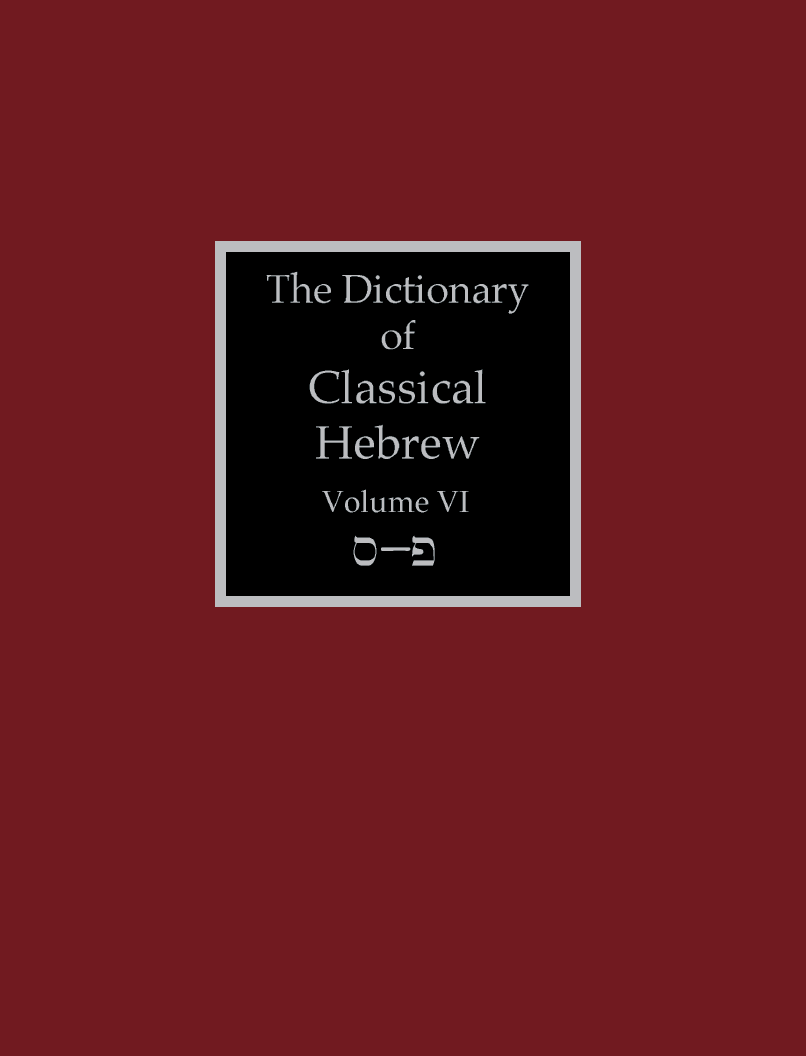

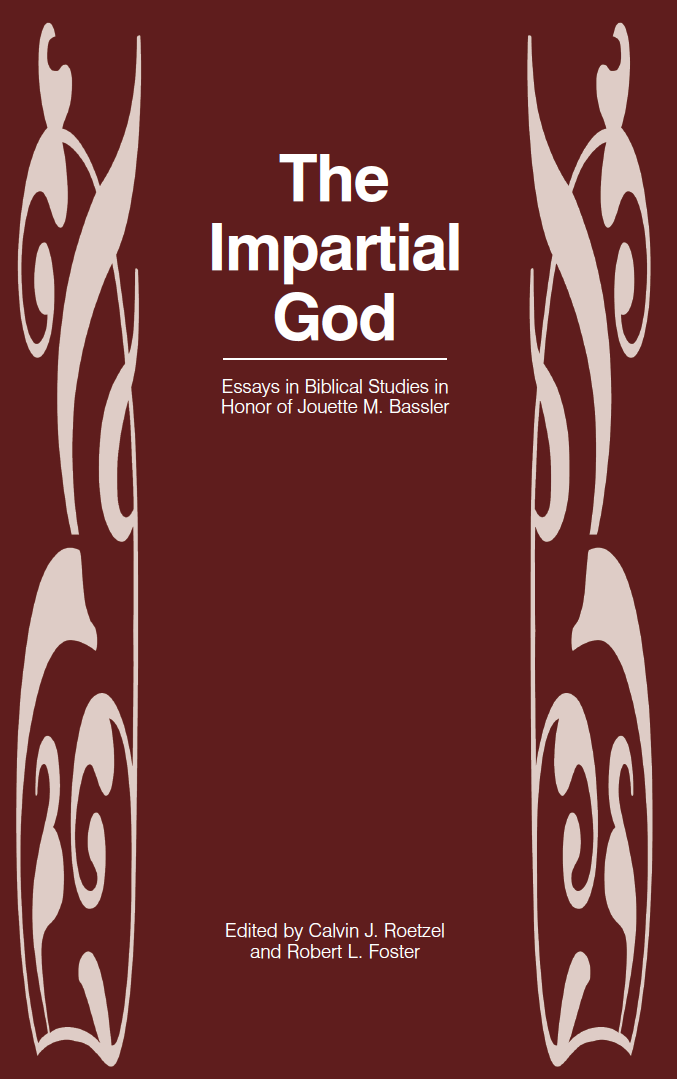
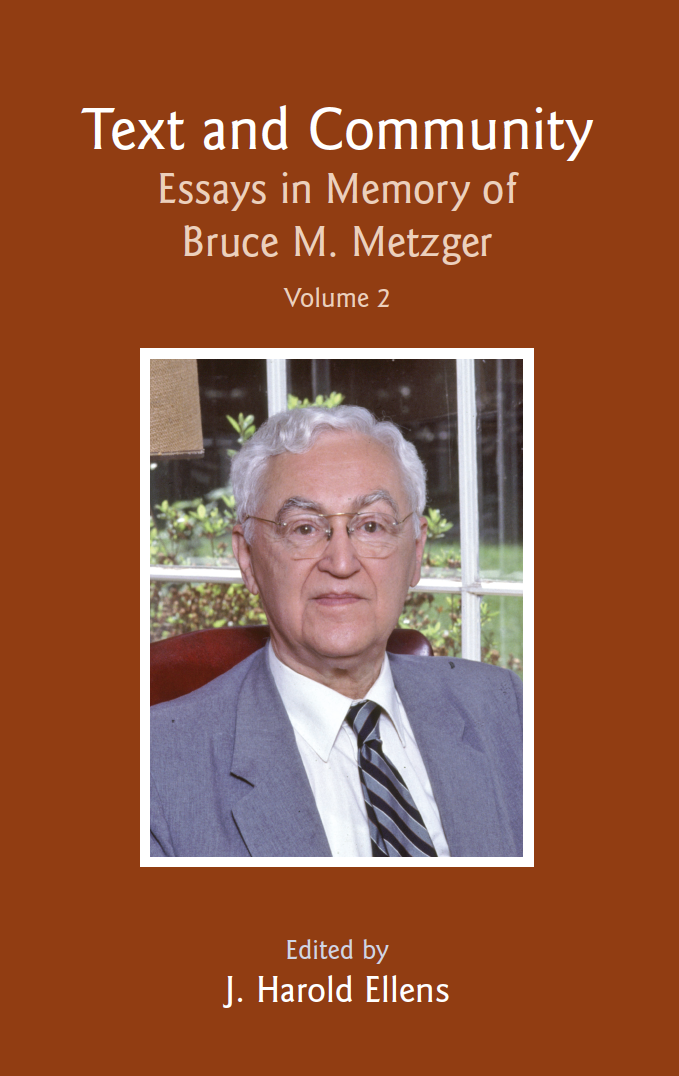
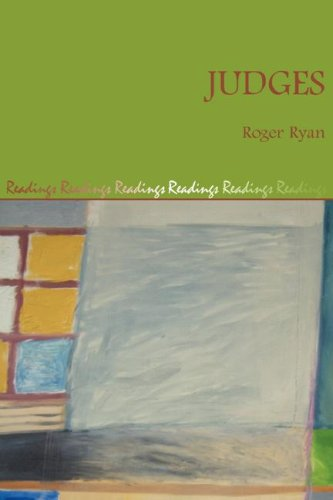
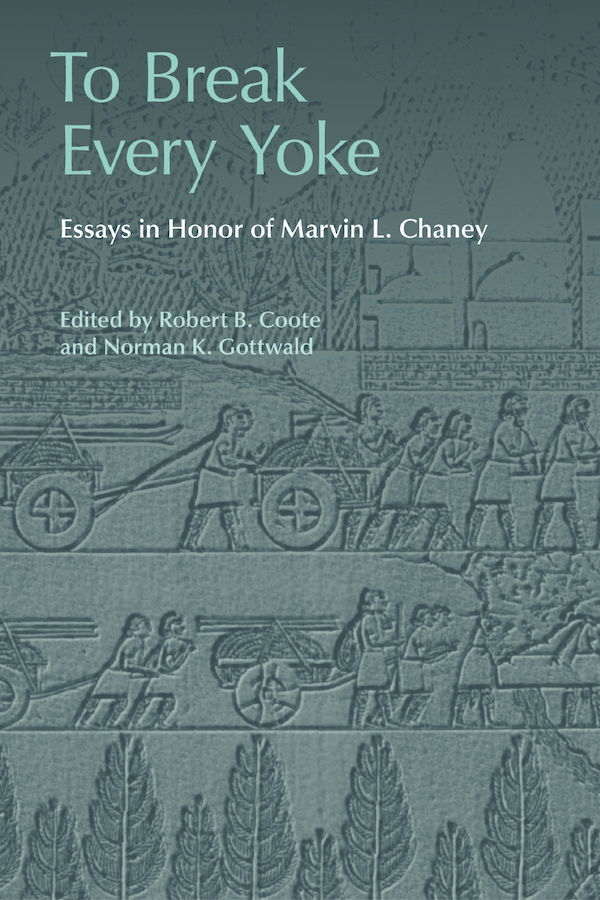
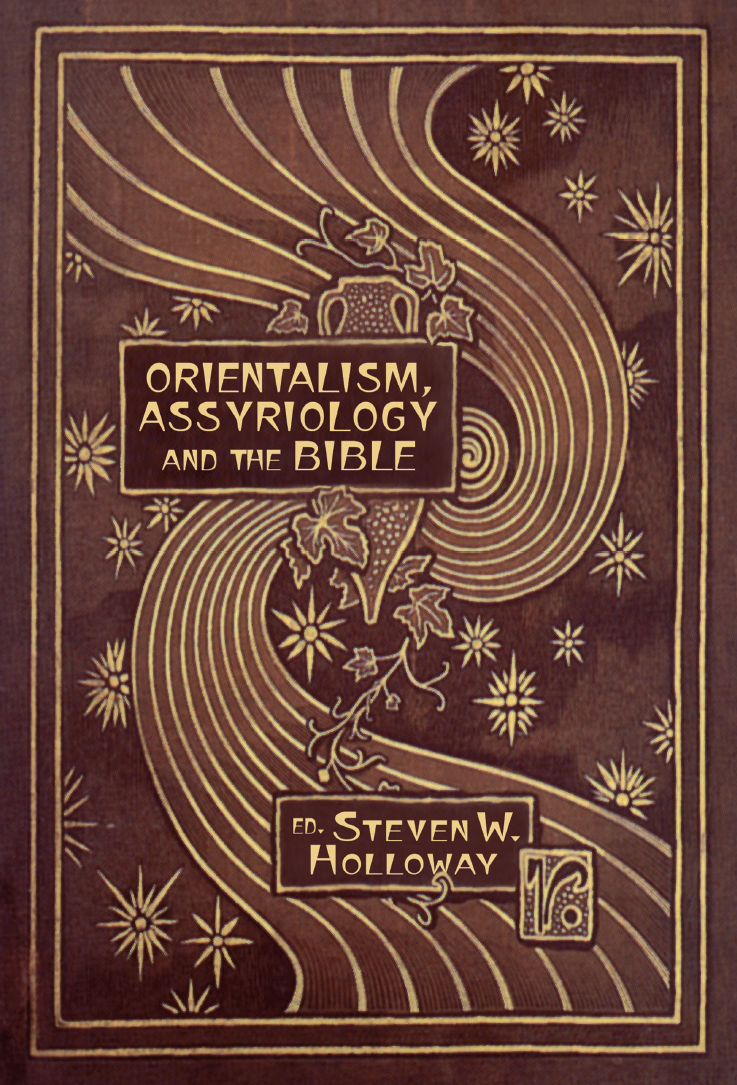
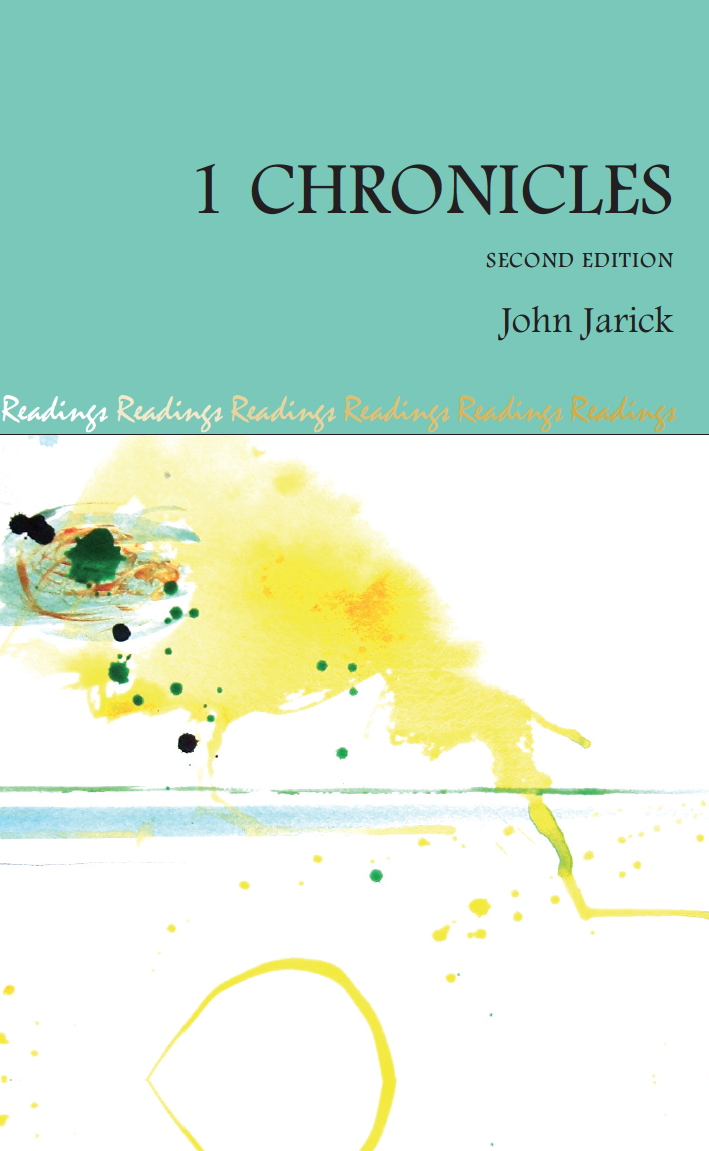
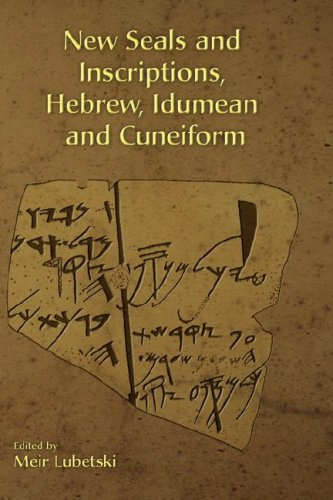
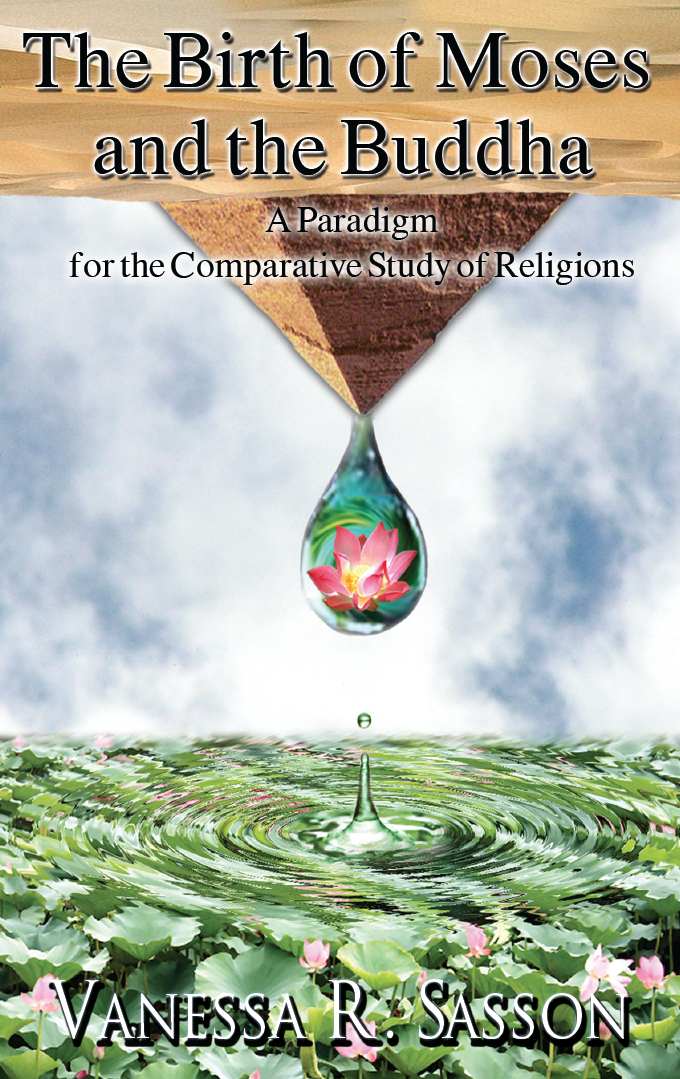
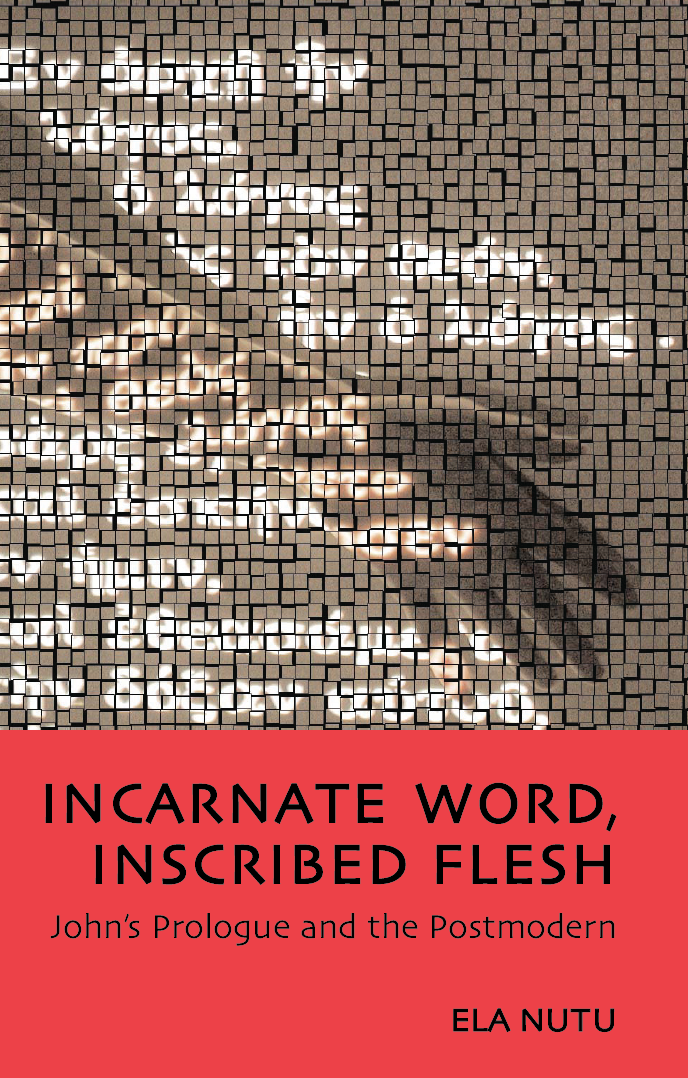

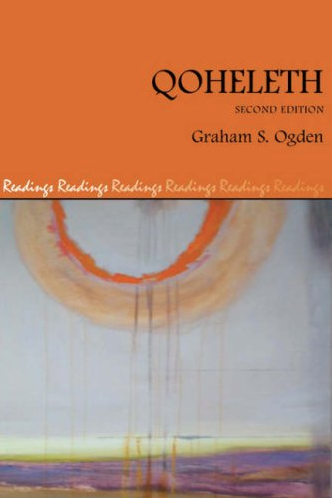
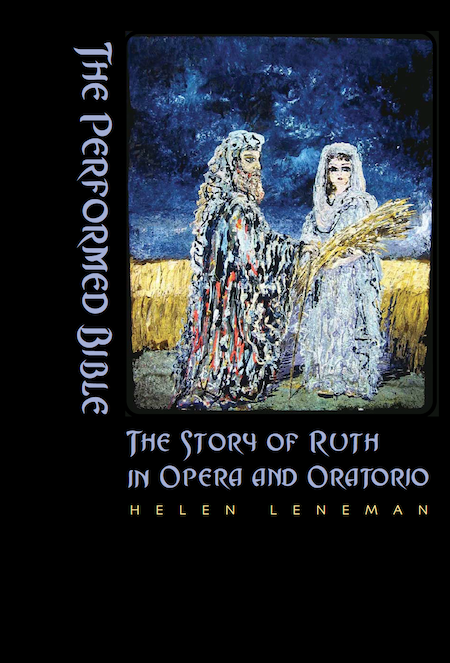
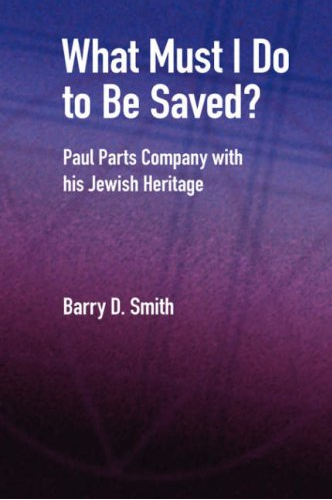
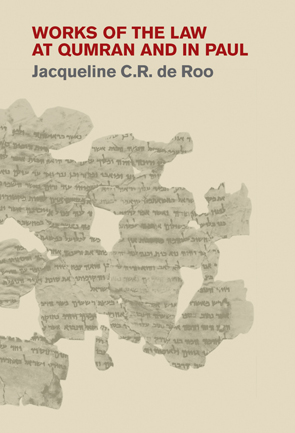


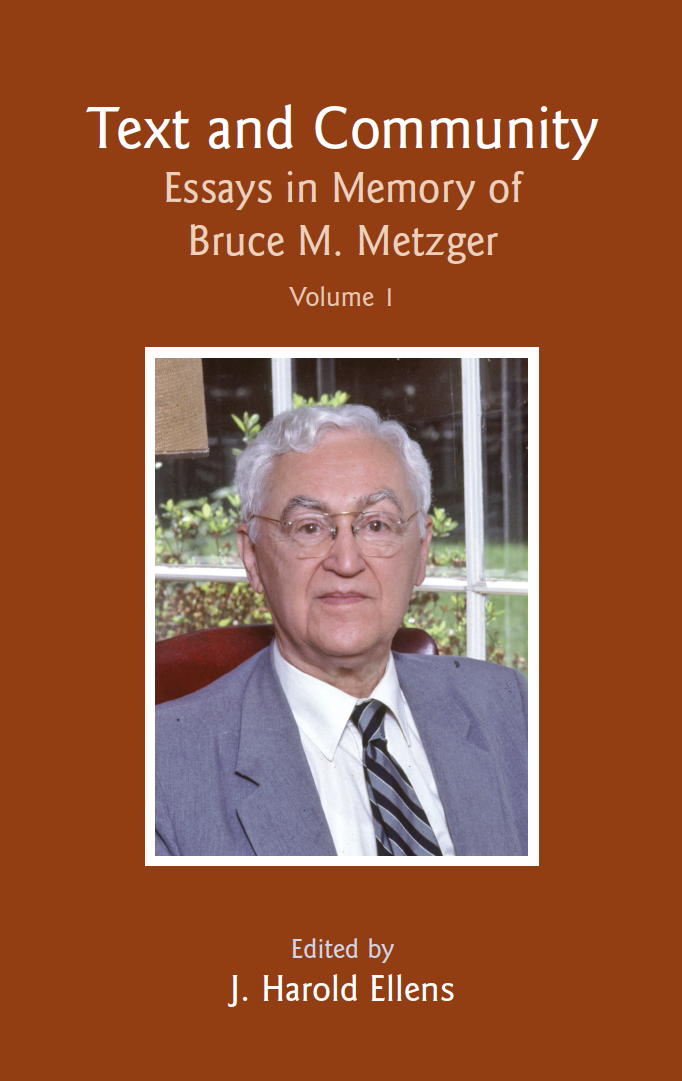

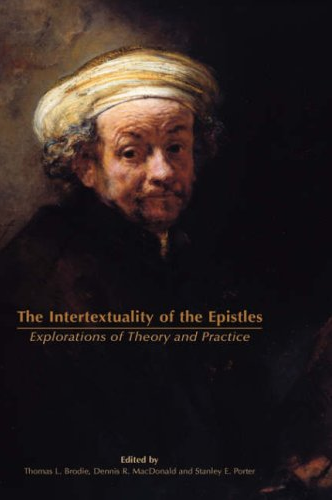

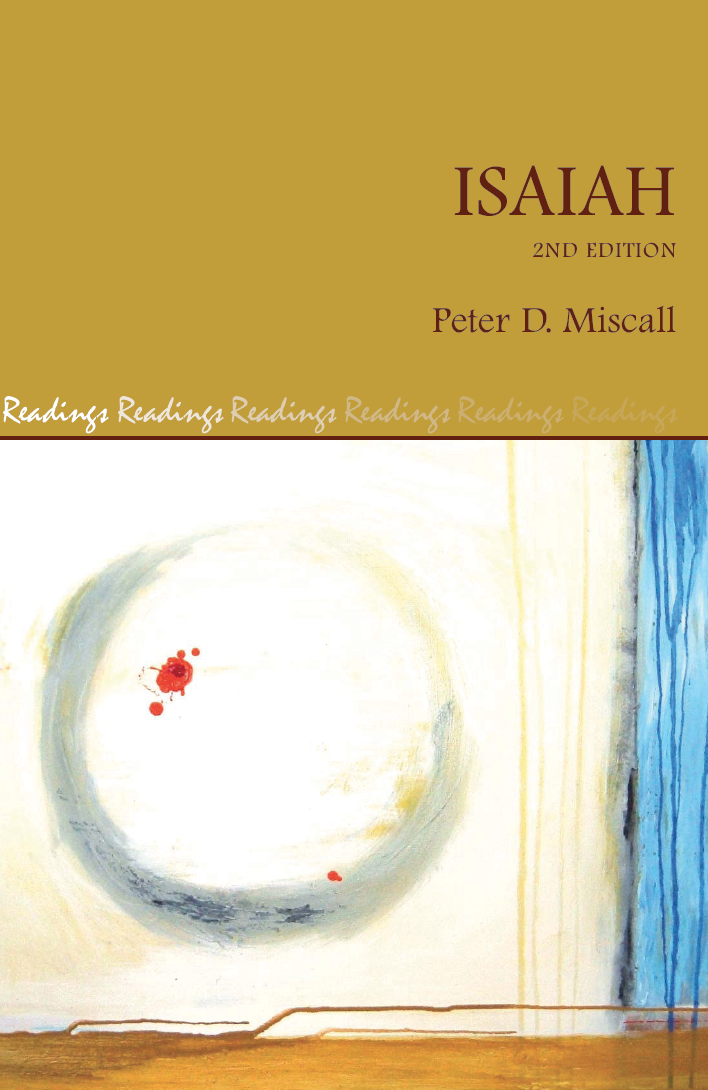


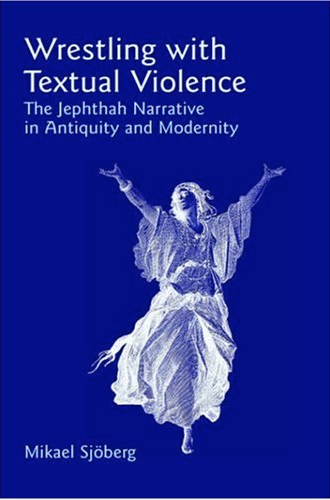
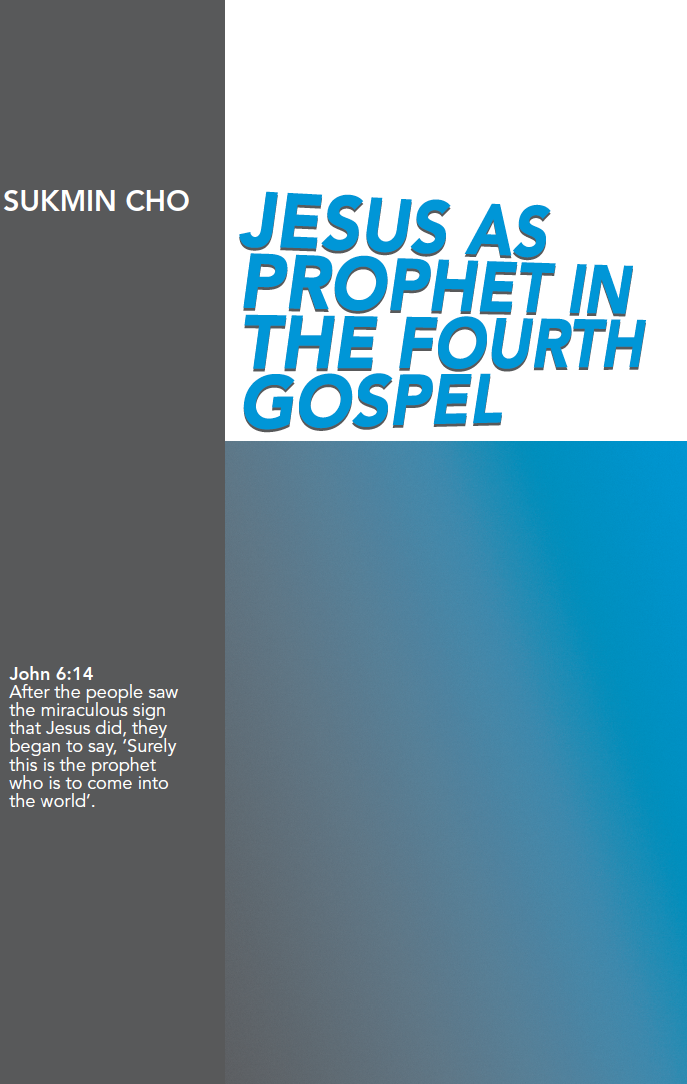

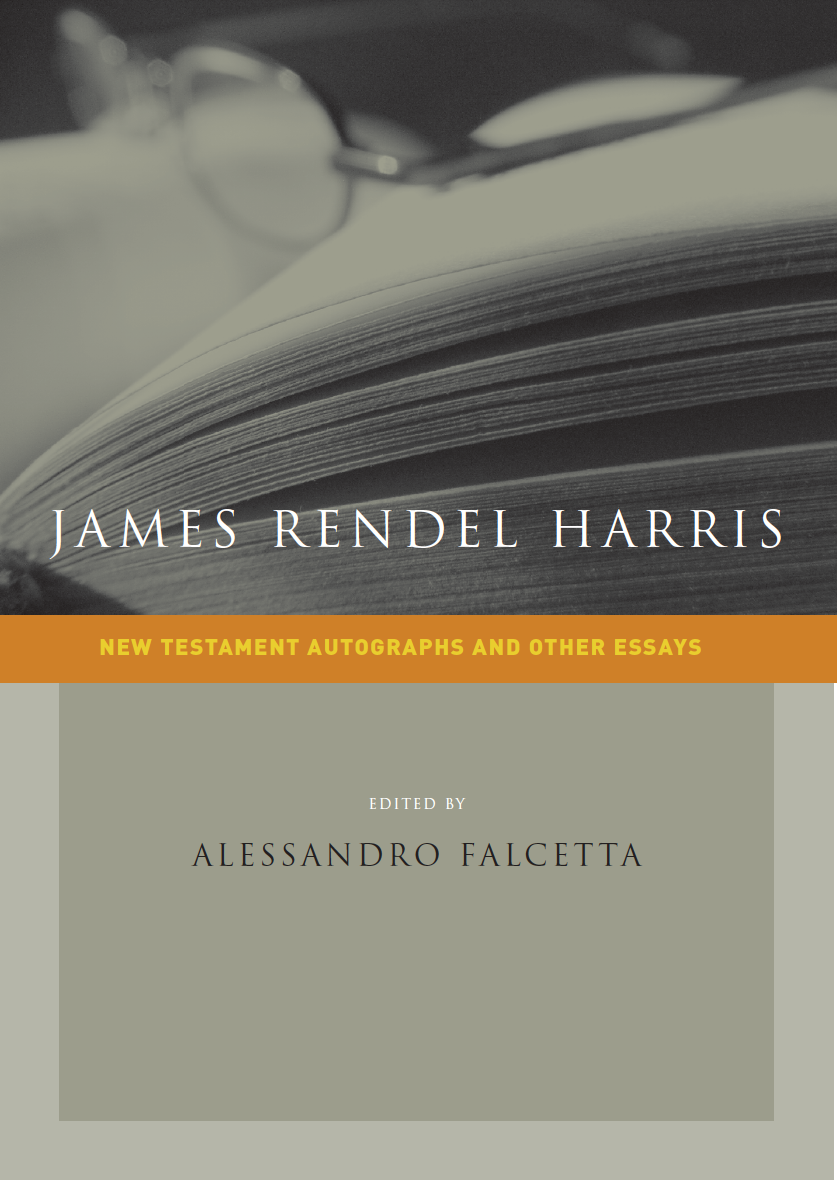




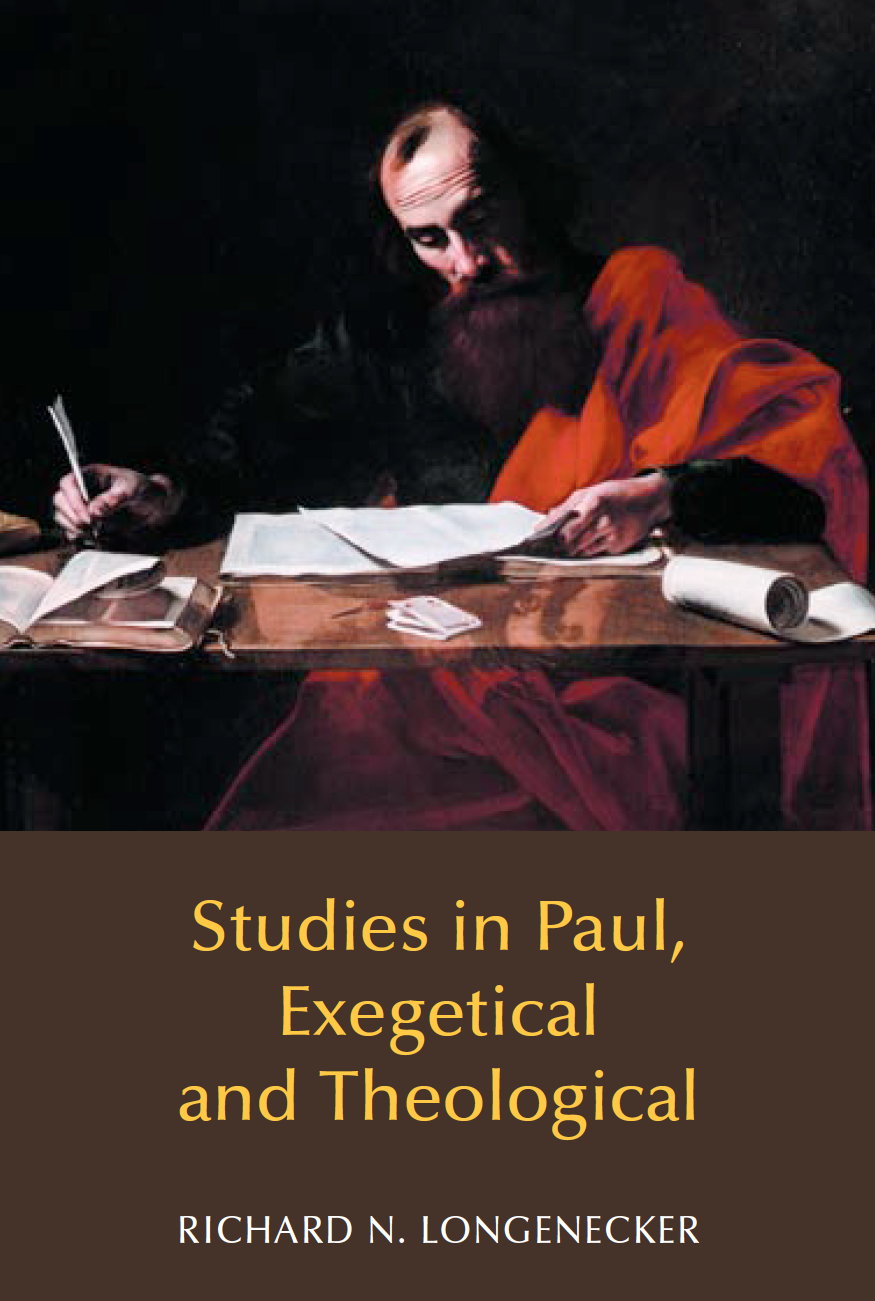
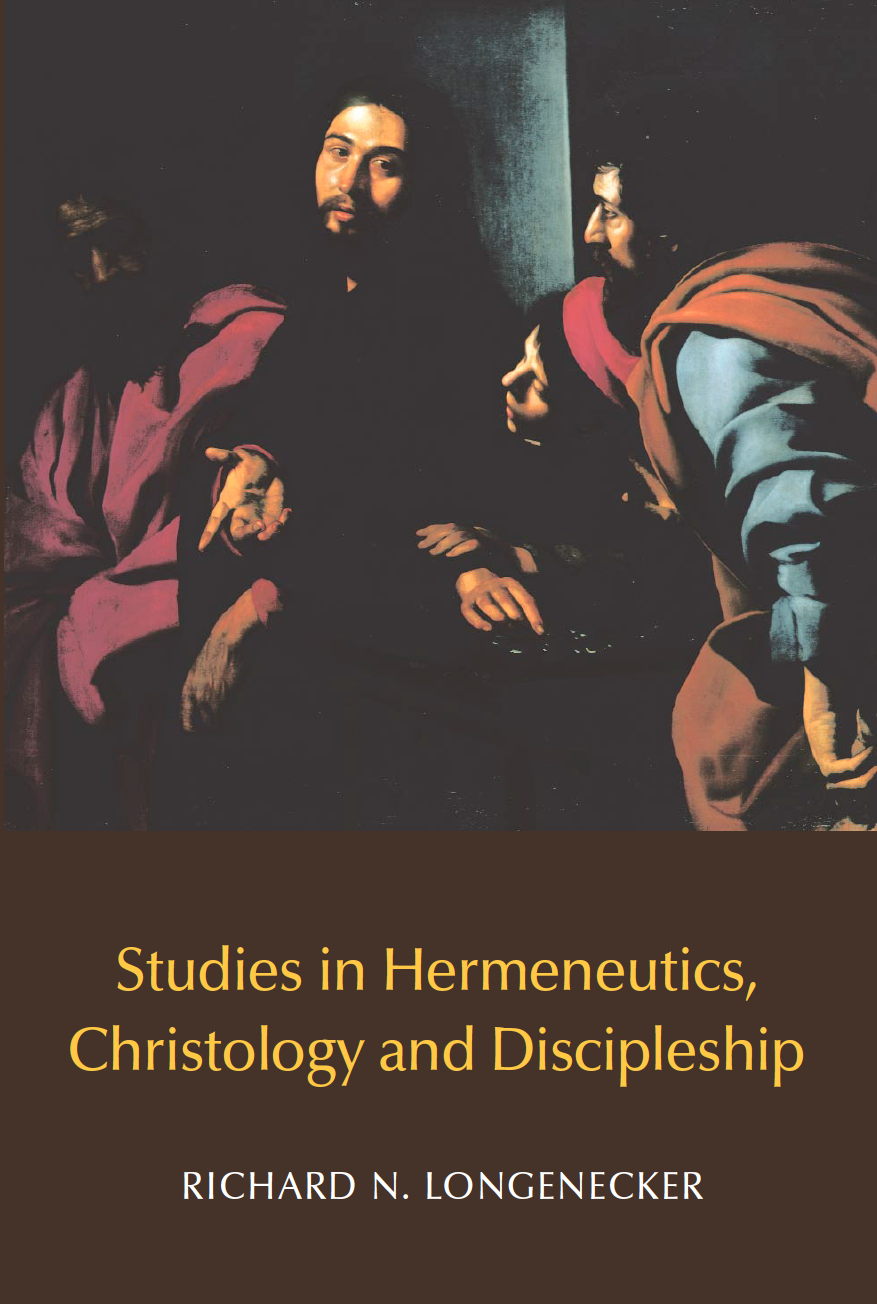
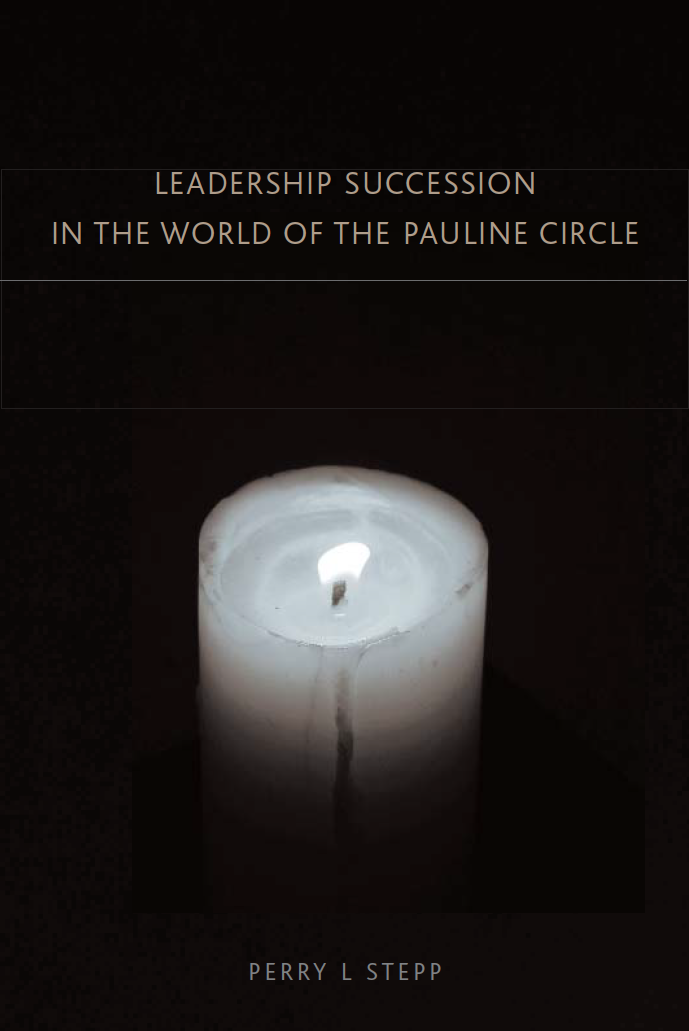
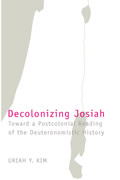
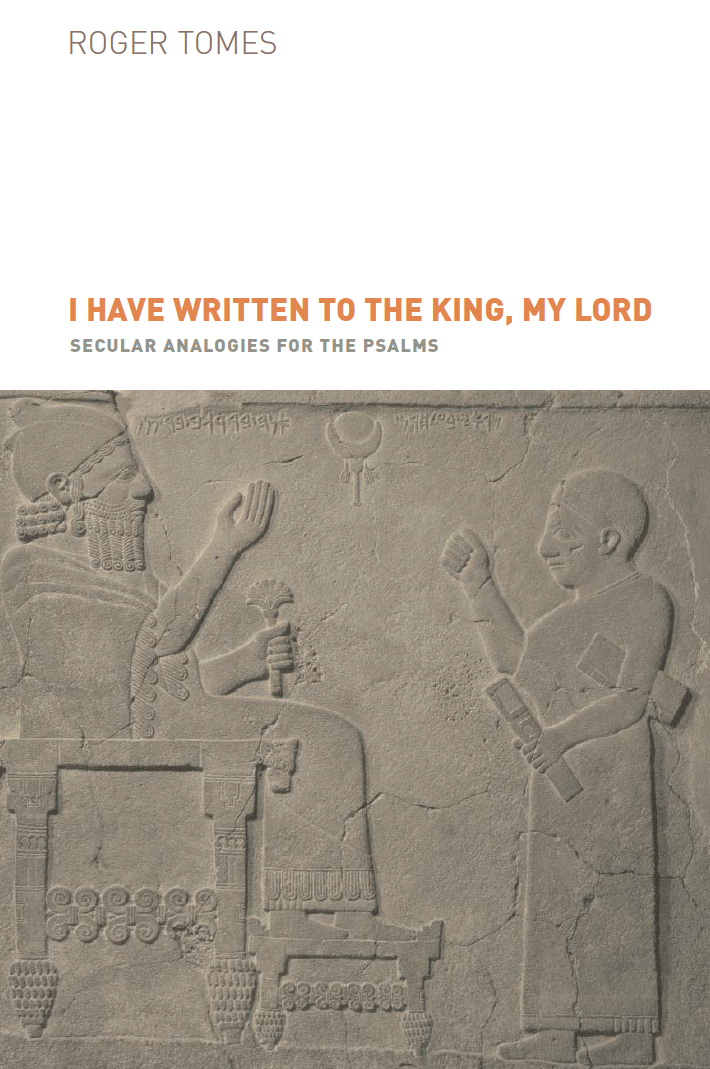

2 Chronicles
2 Chronicles